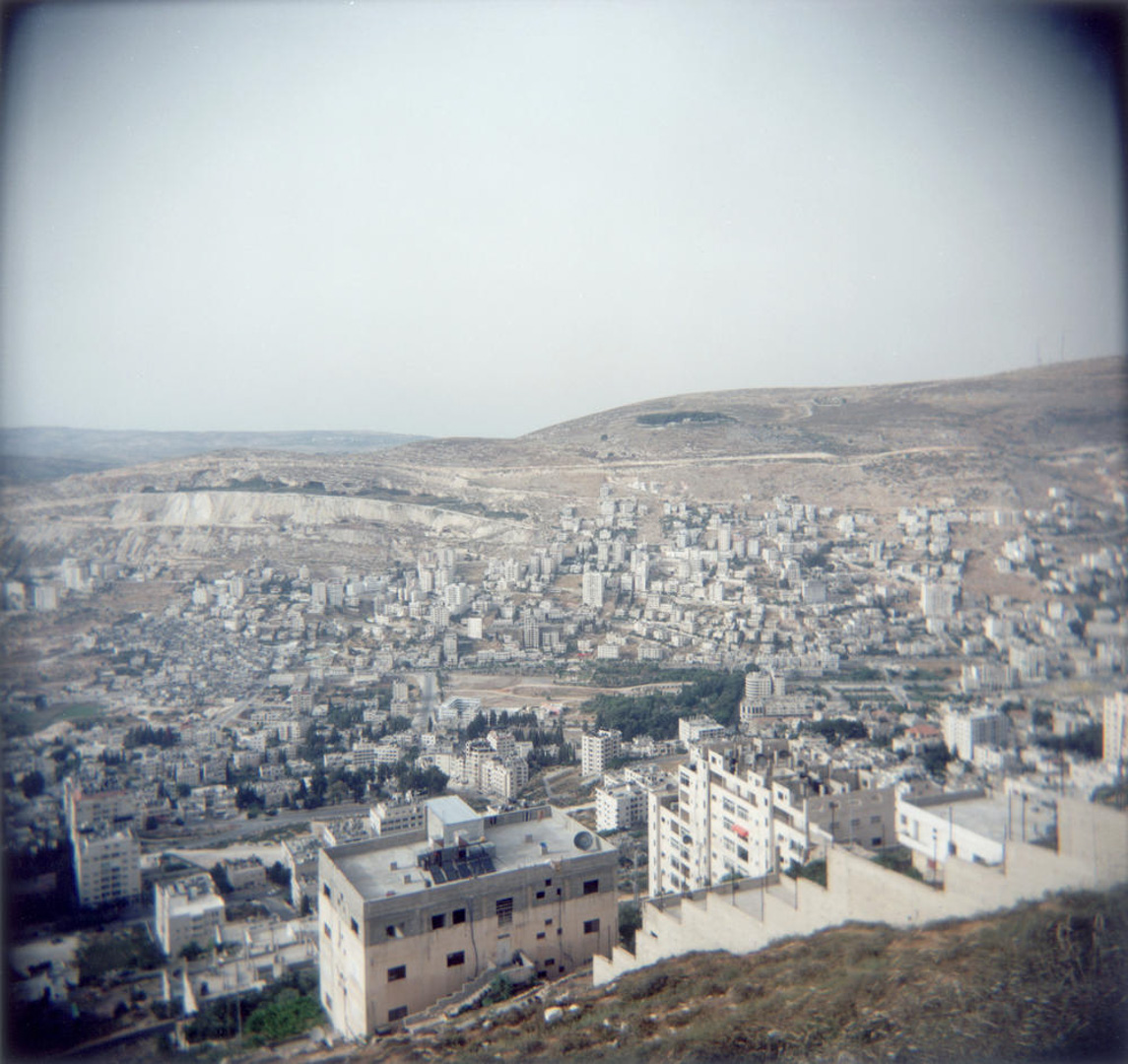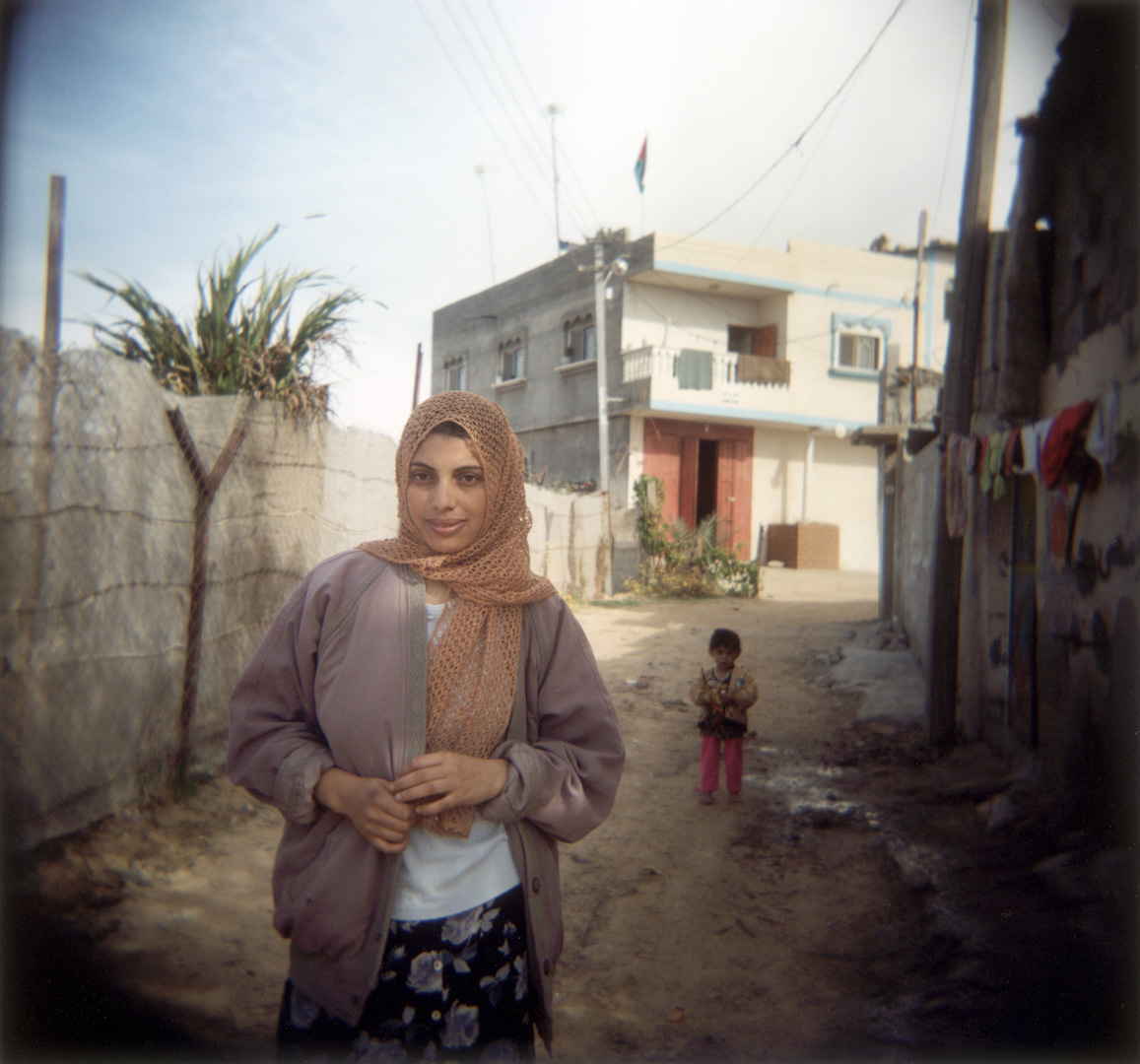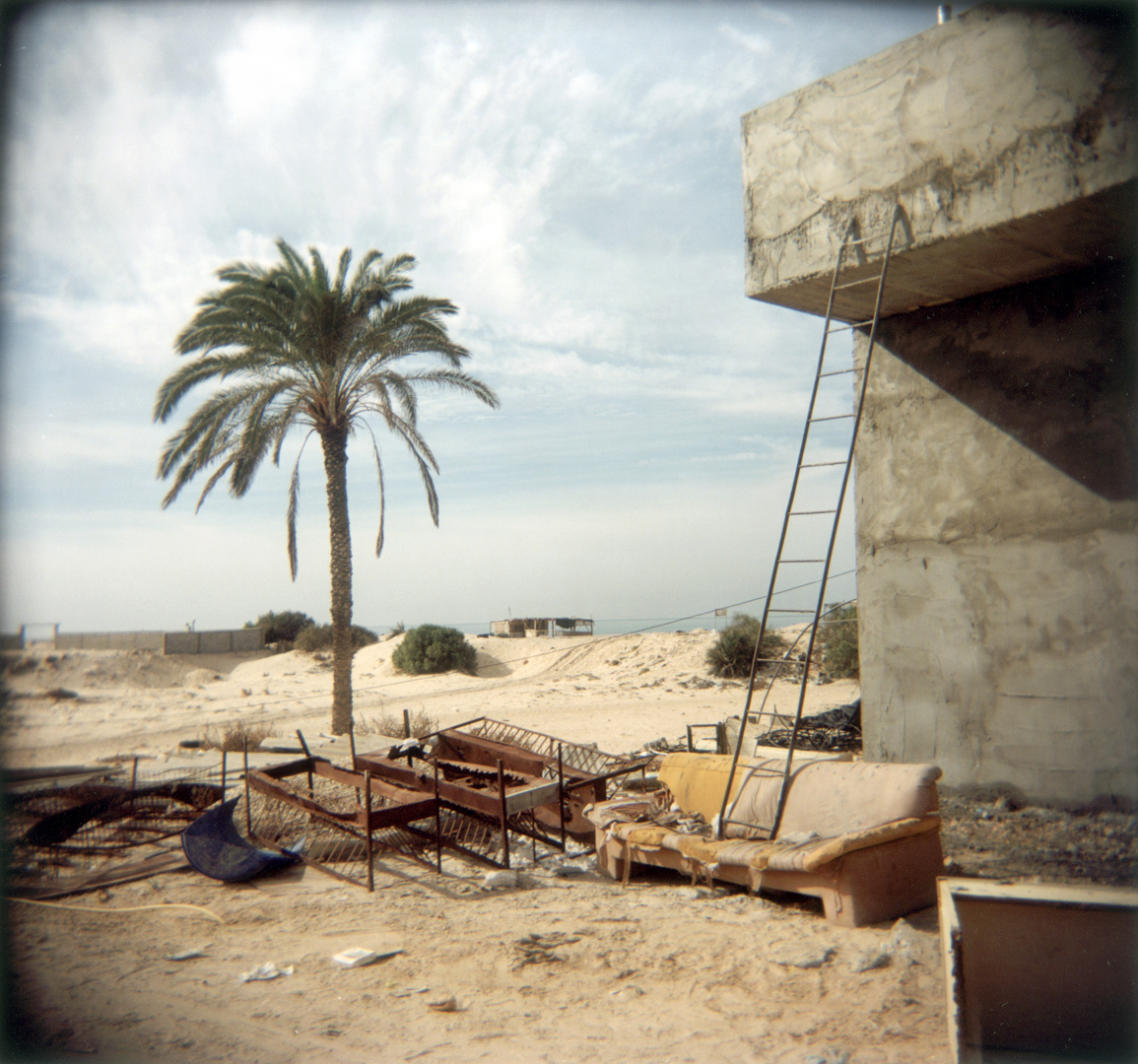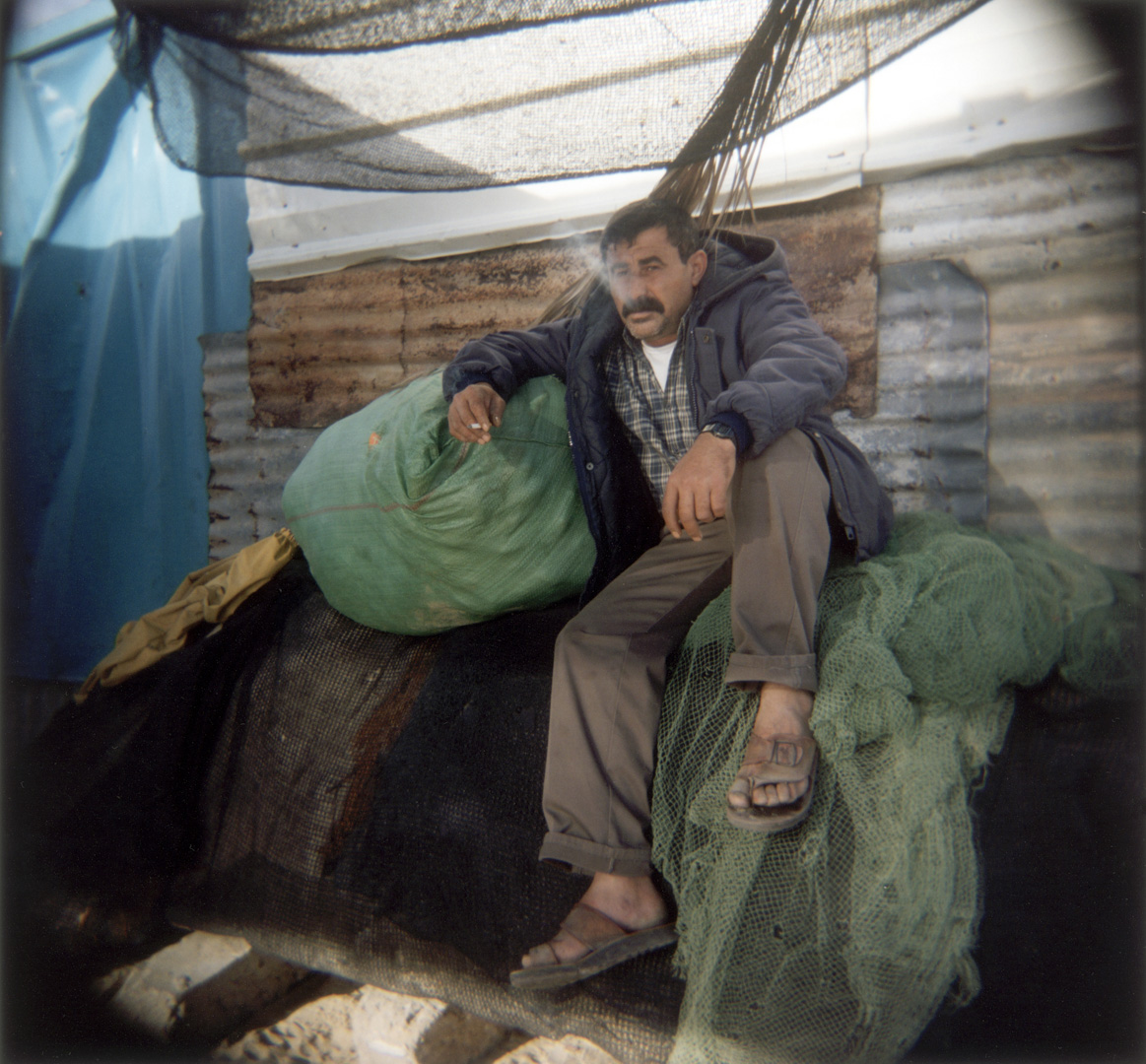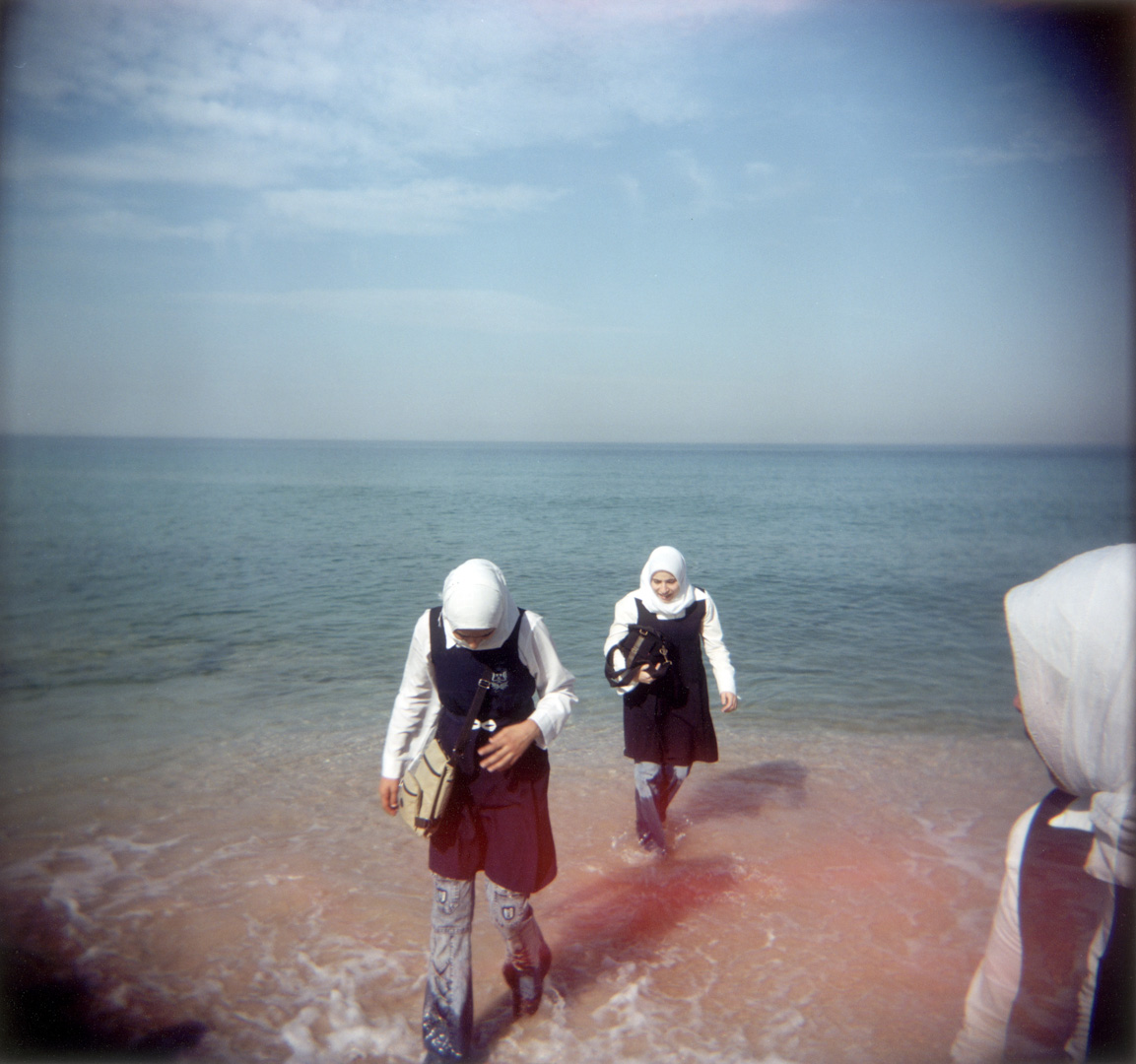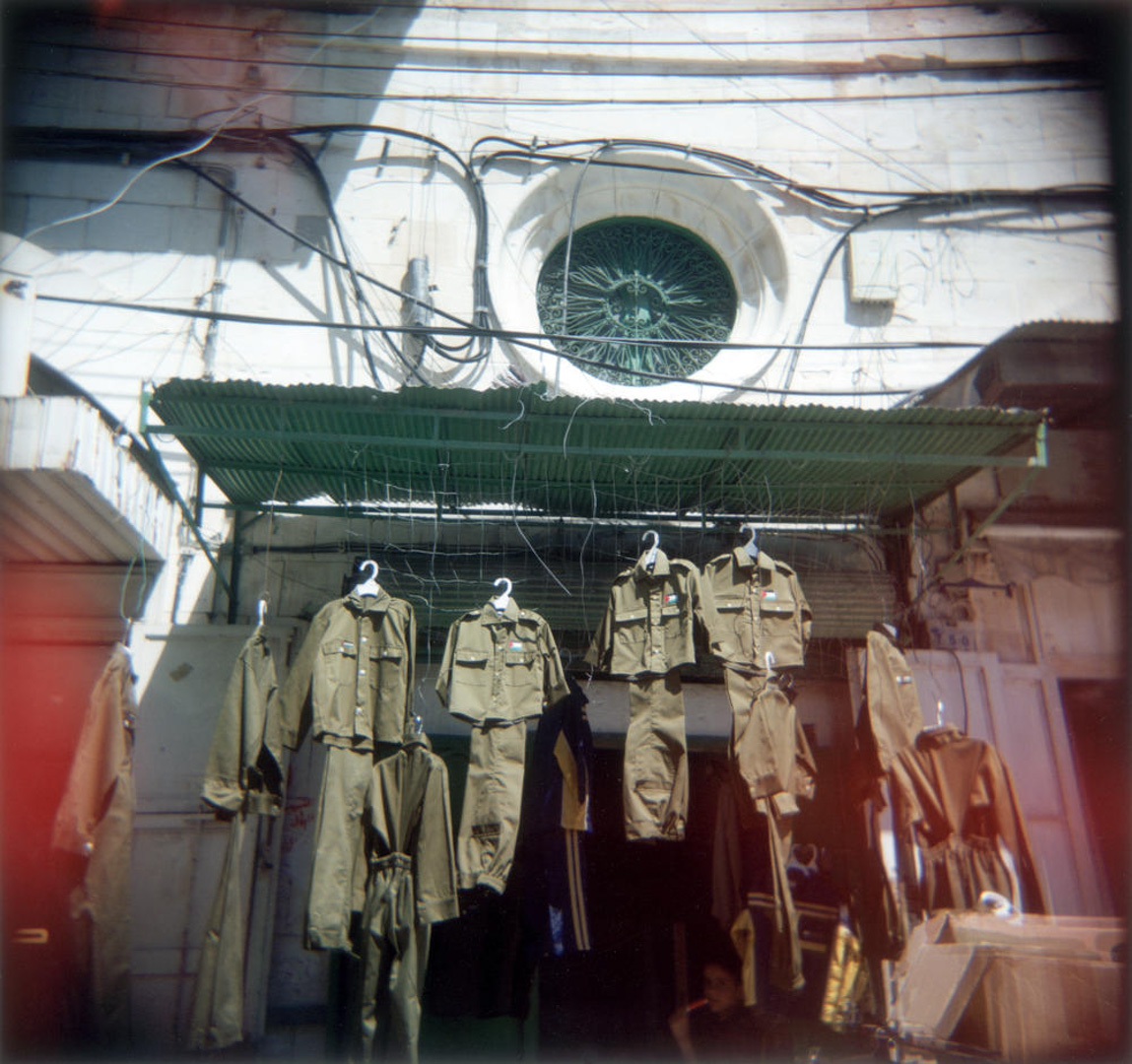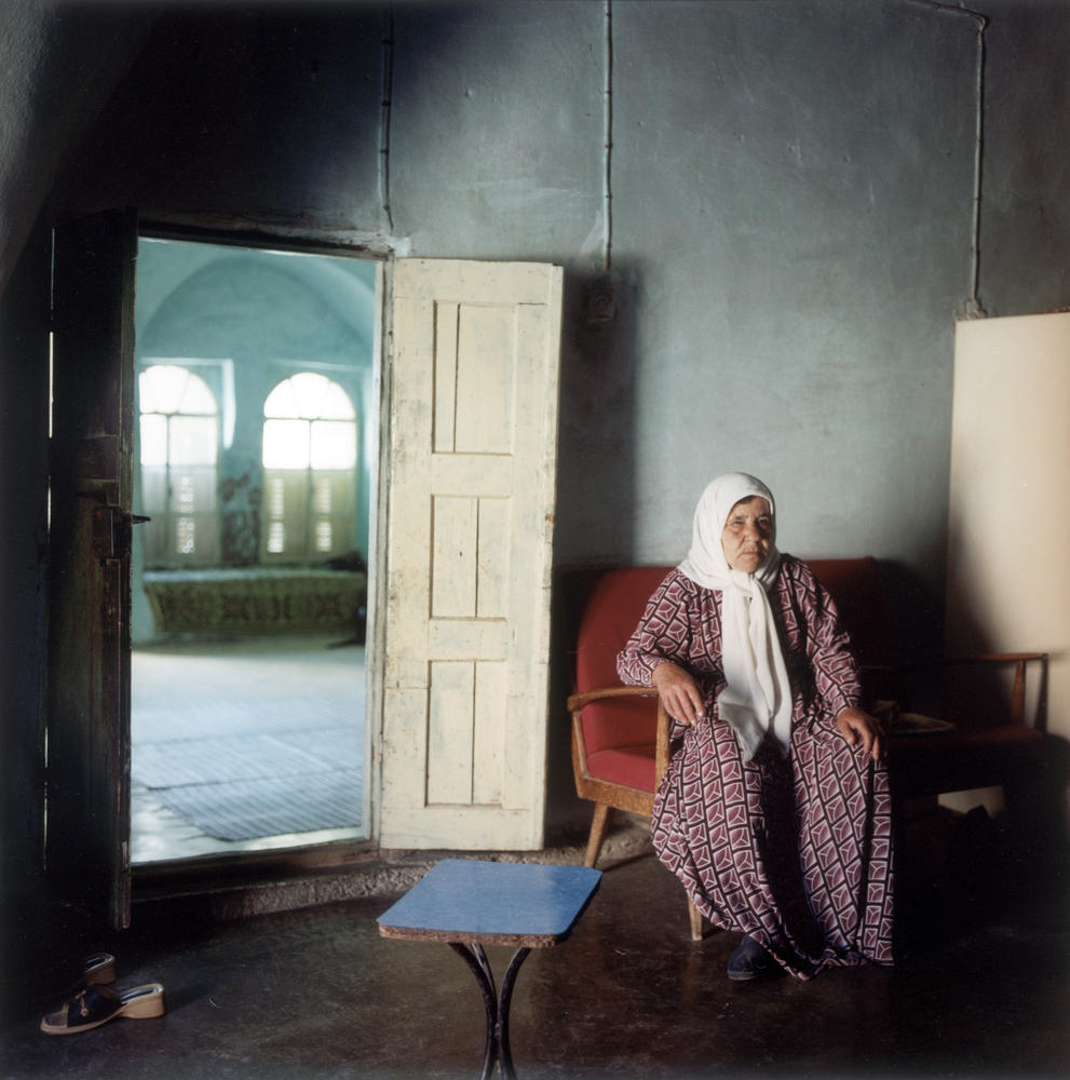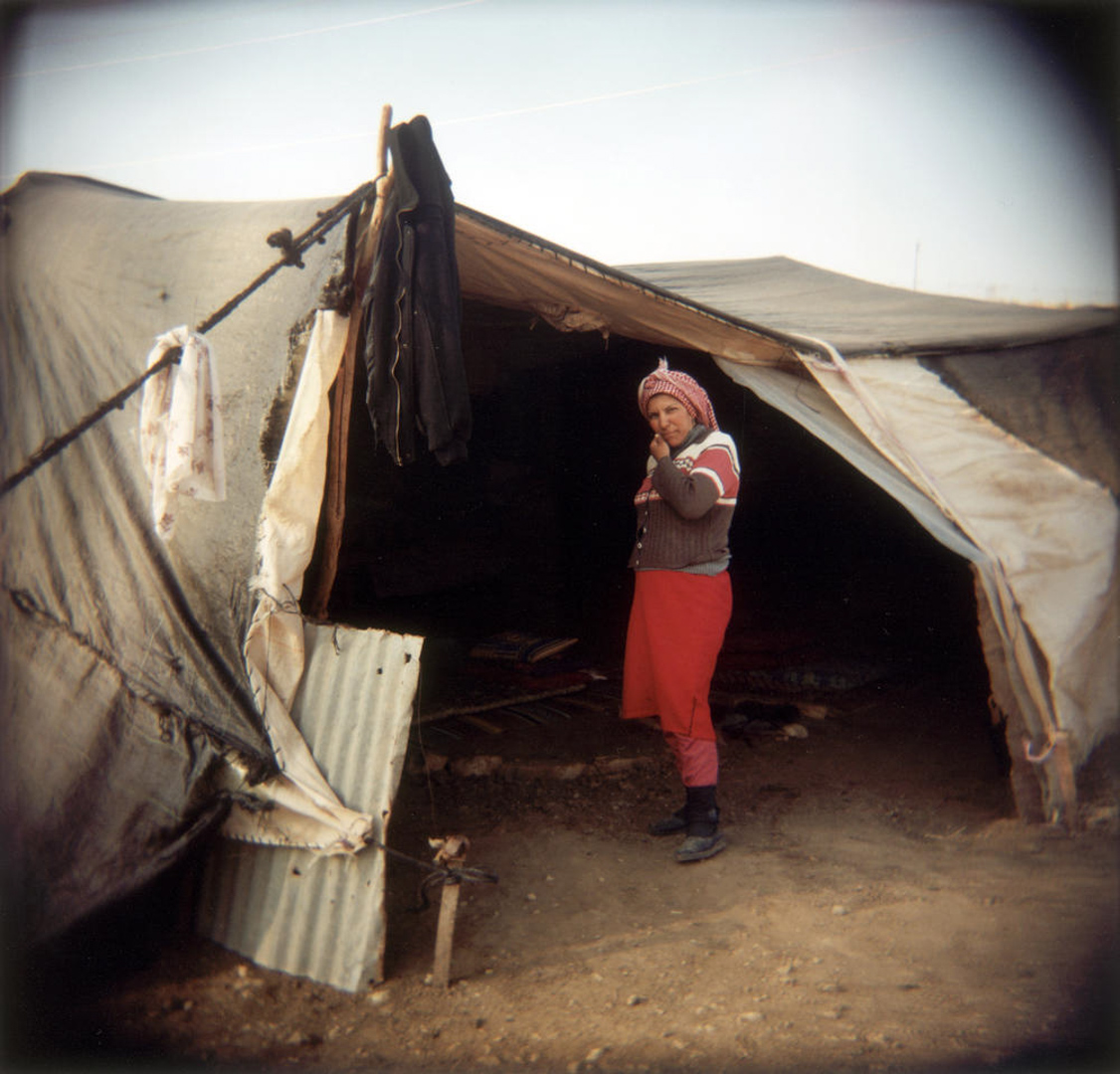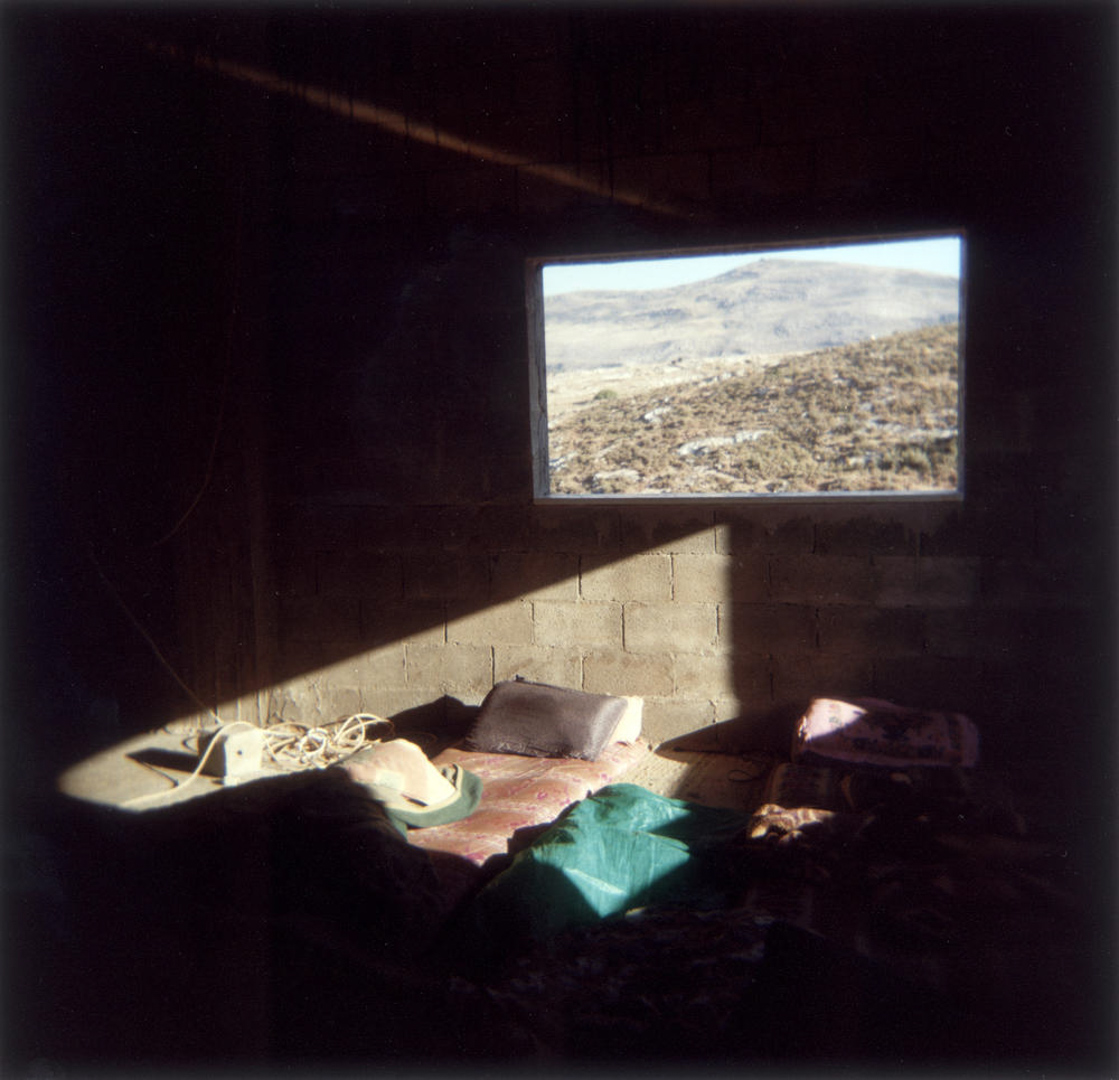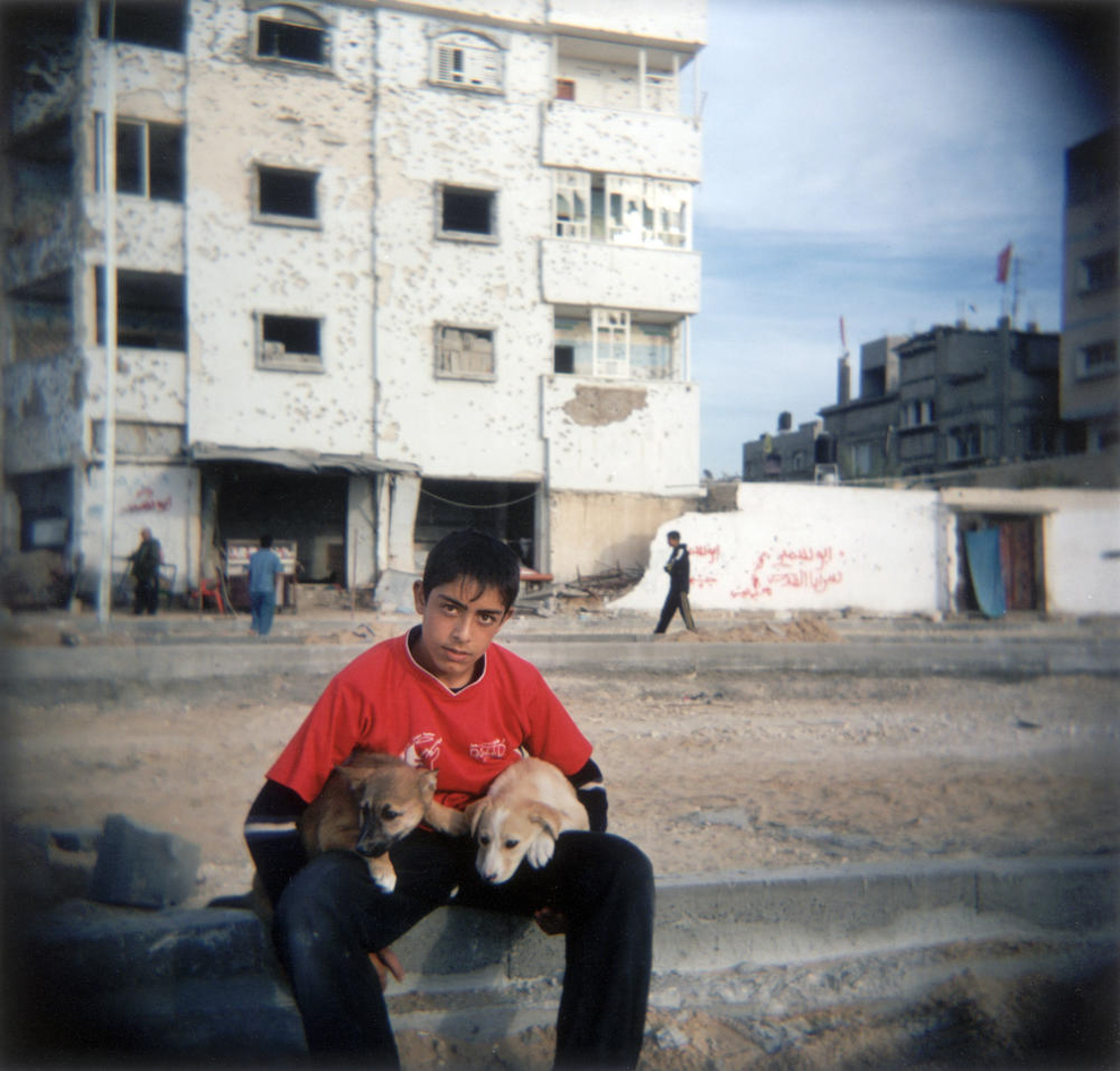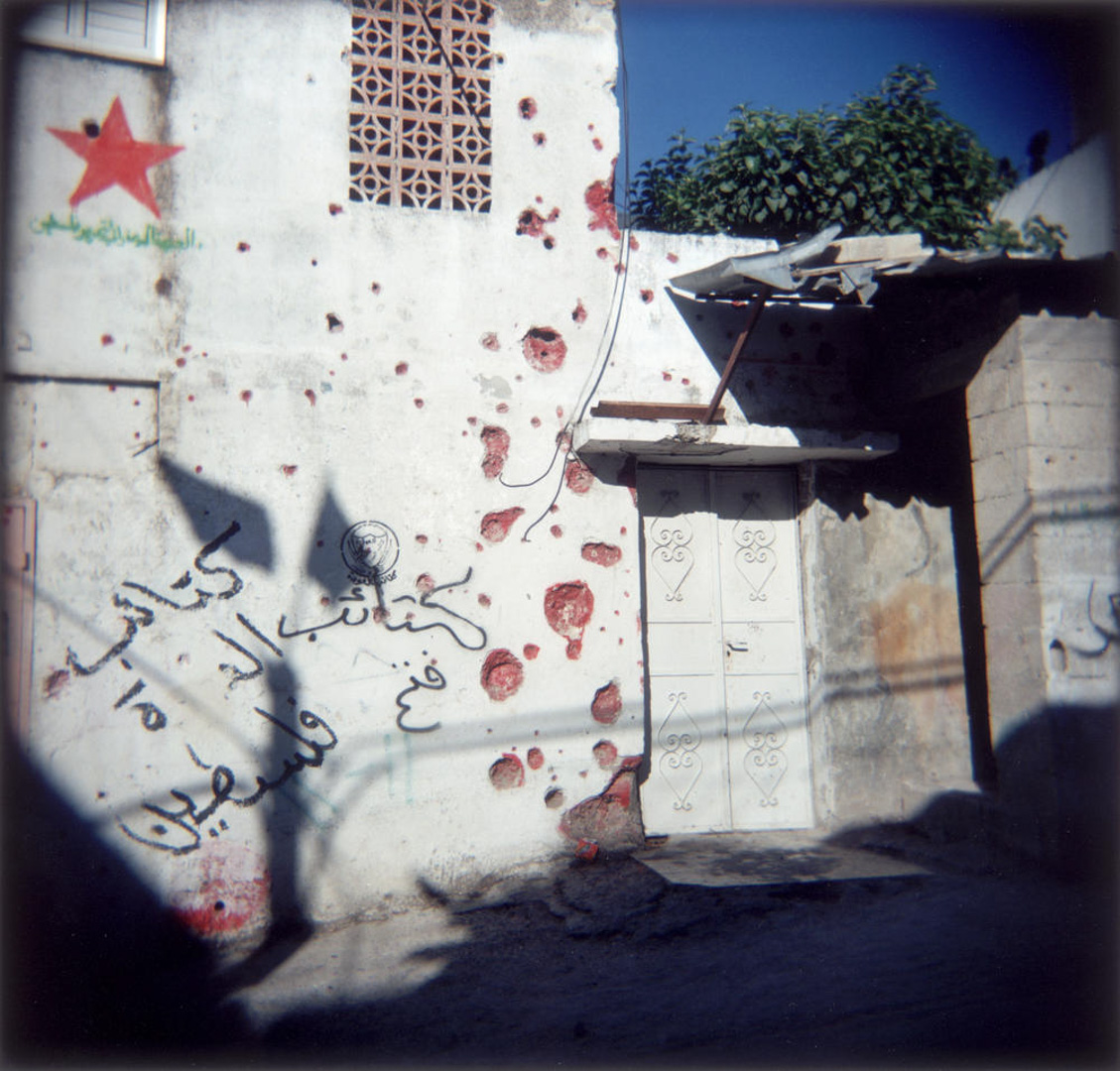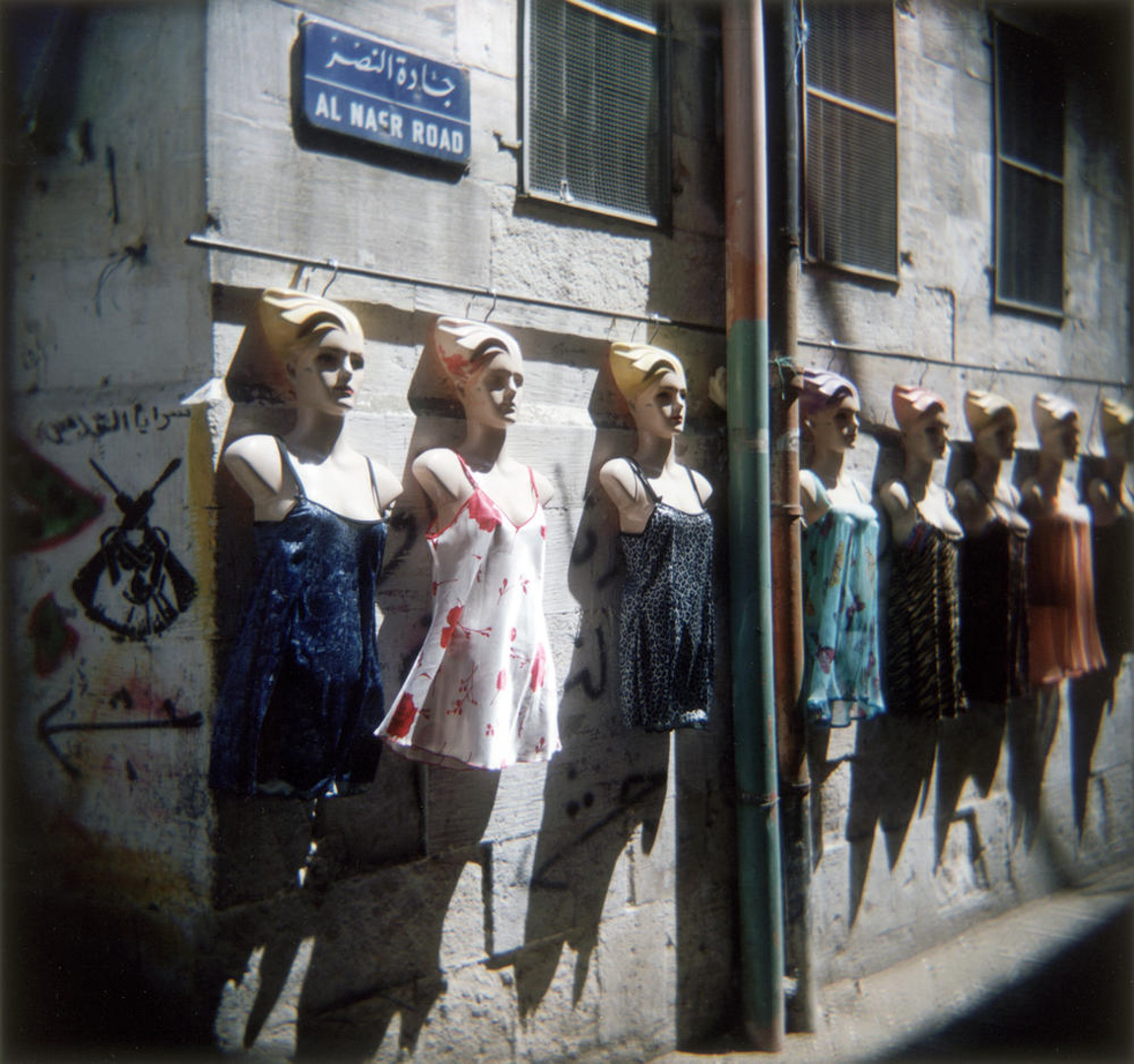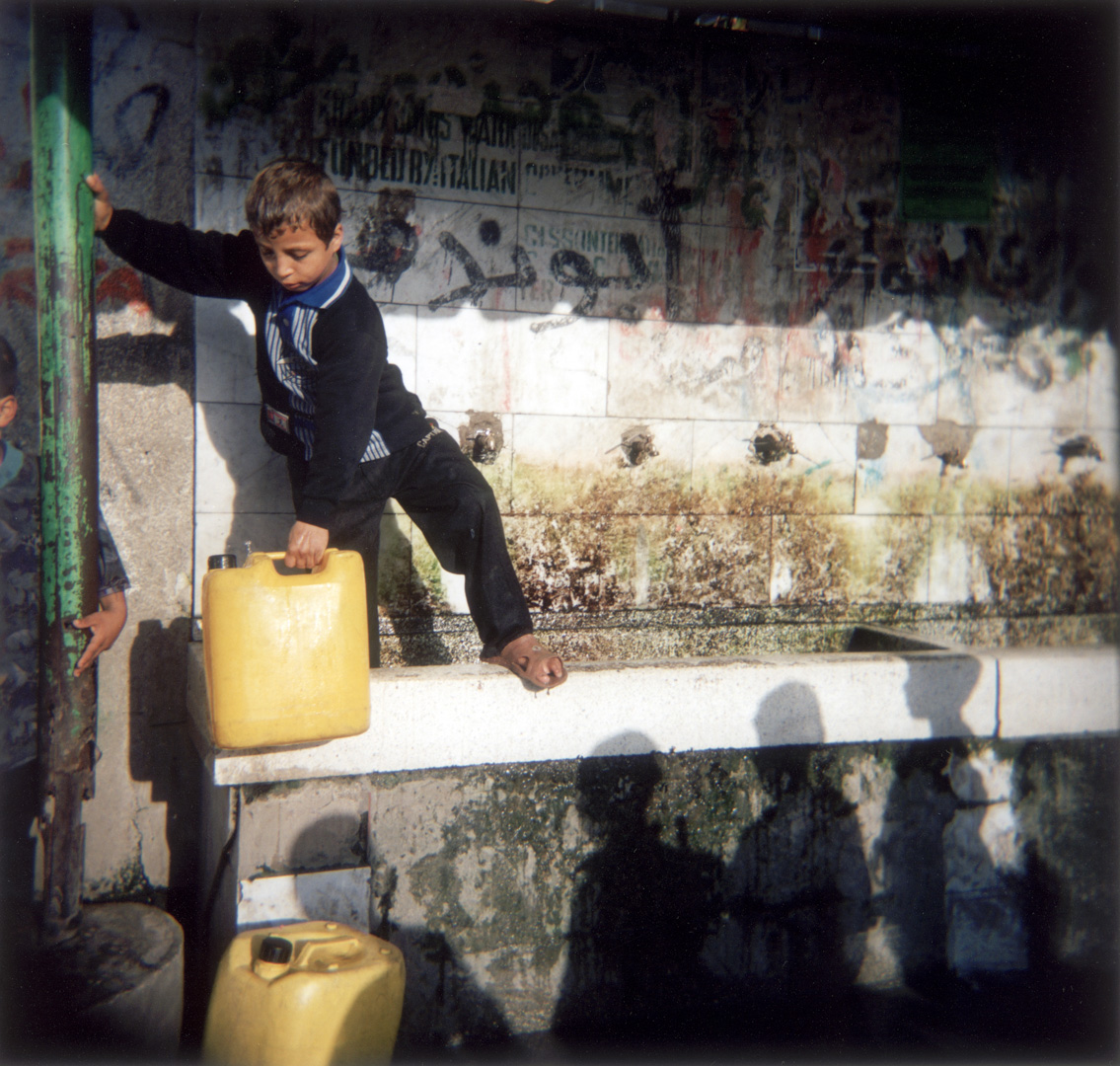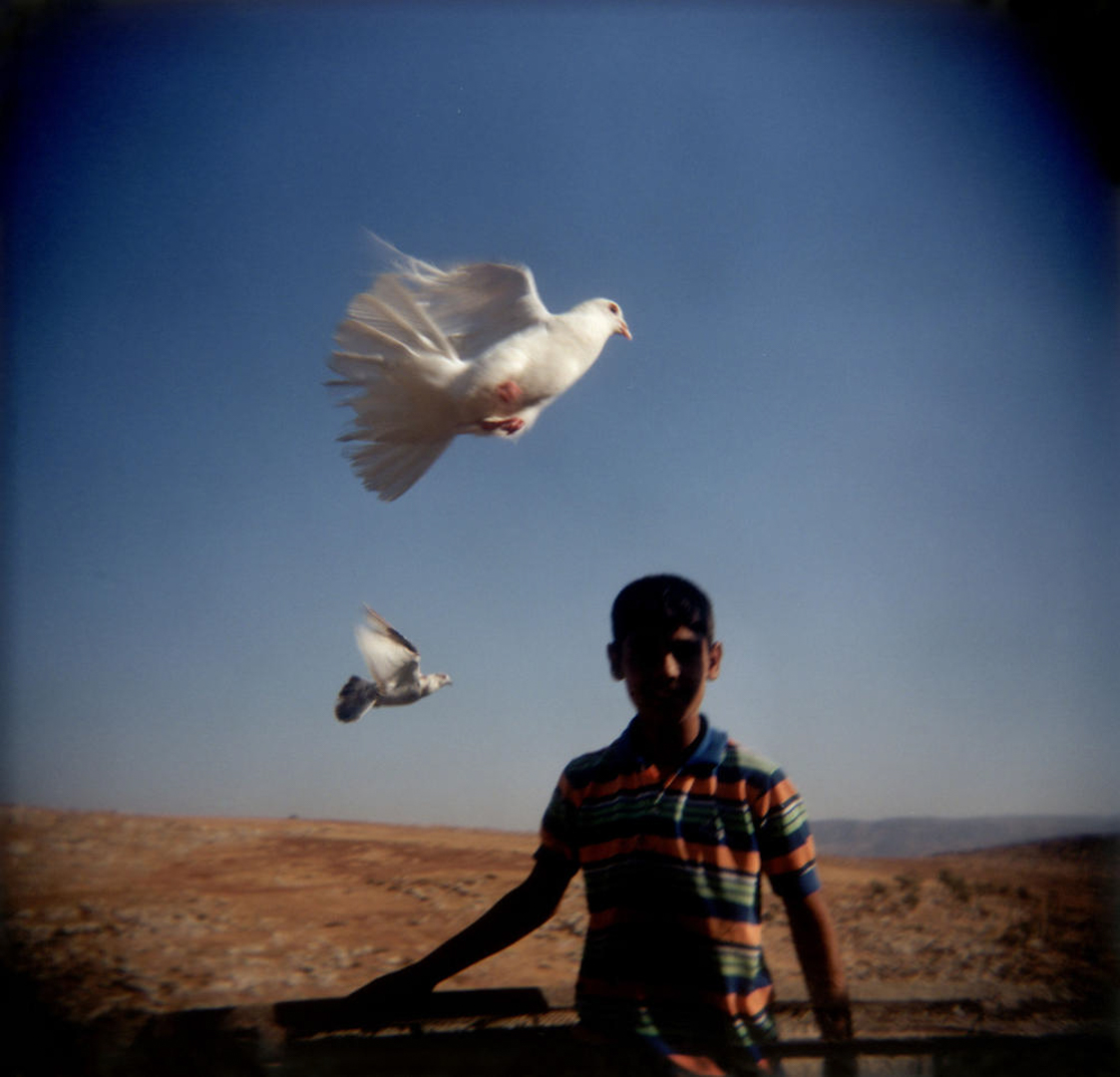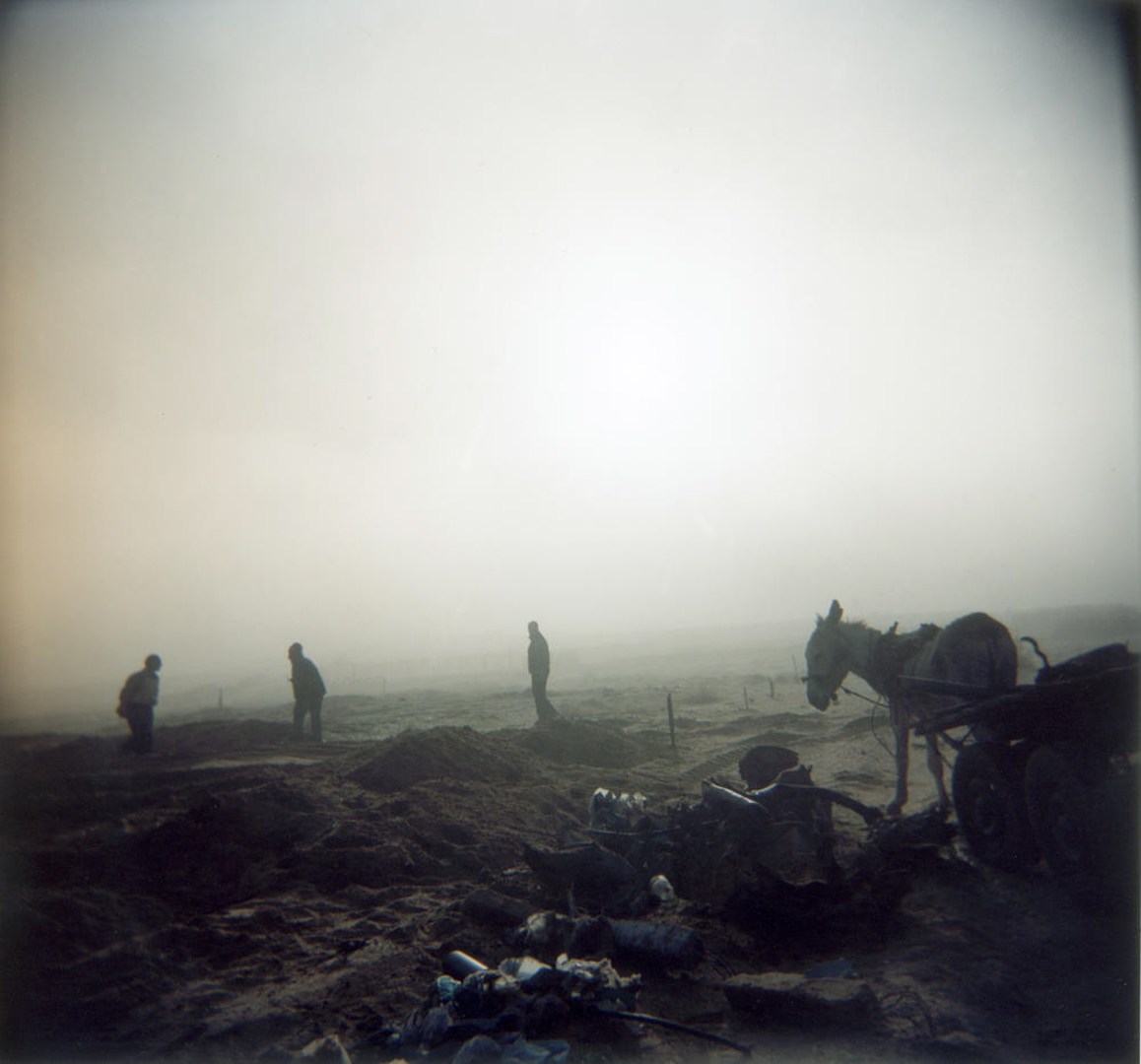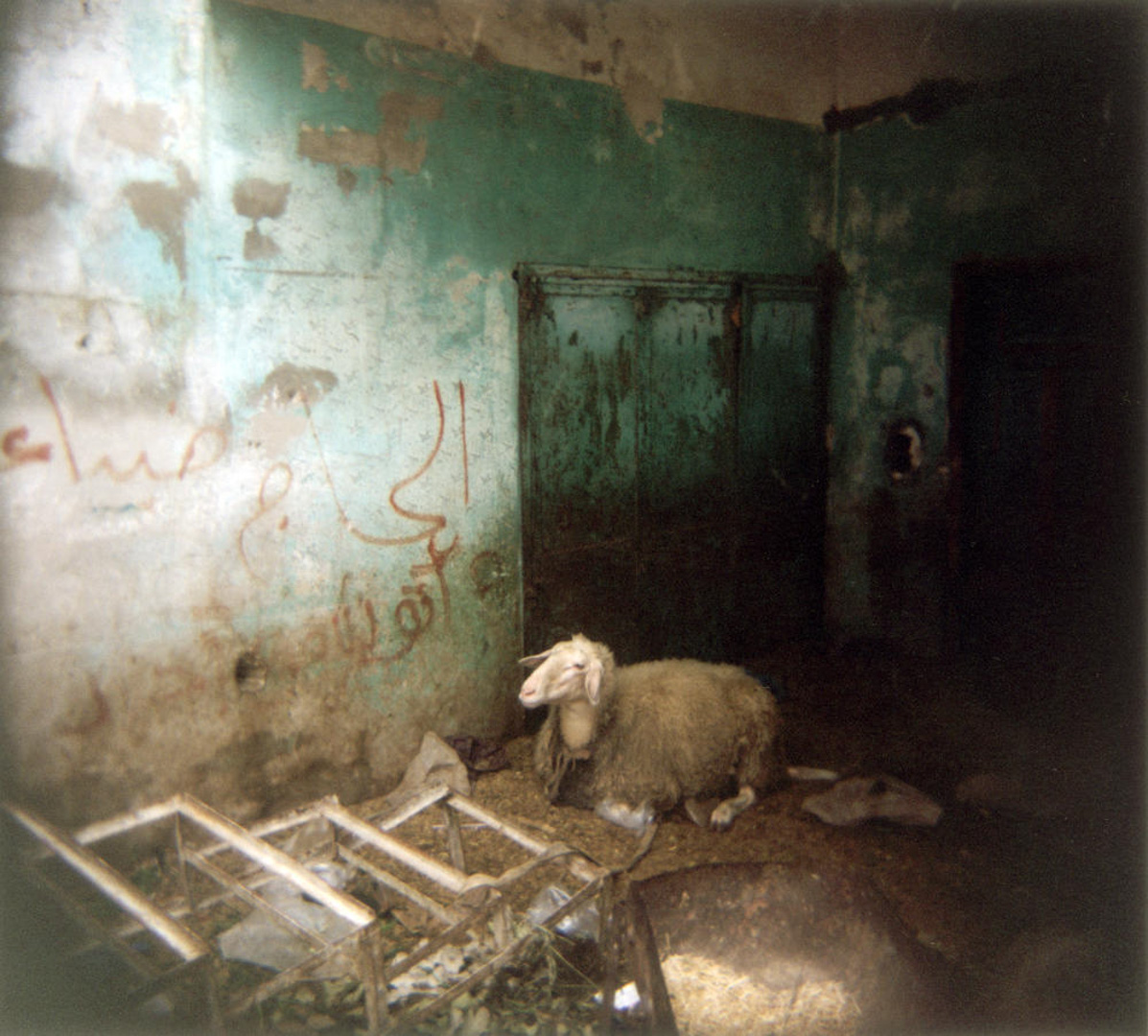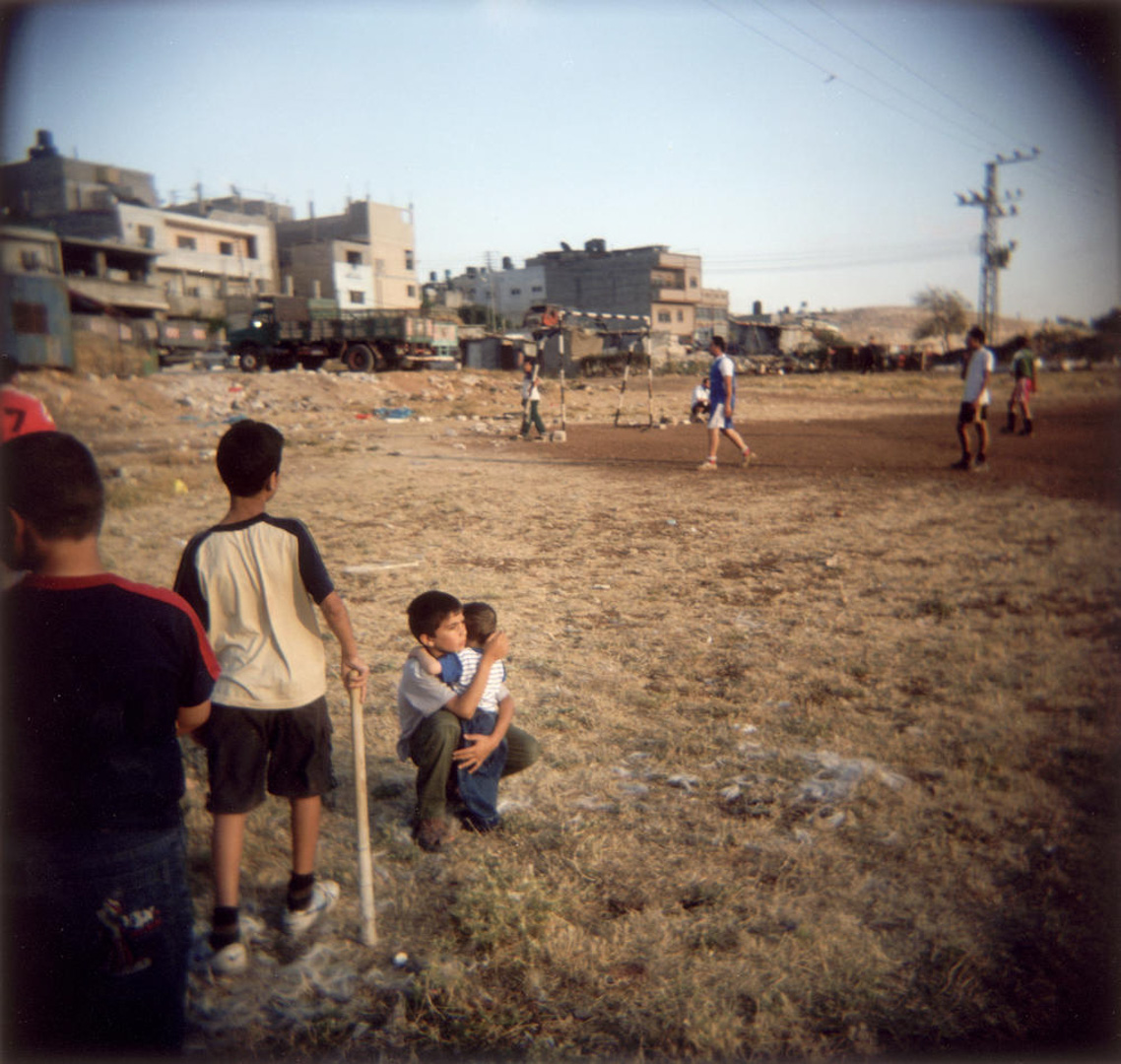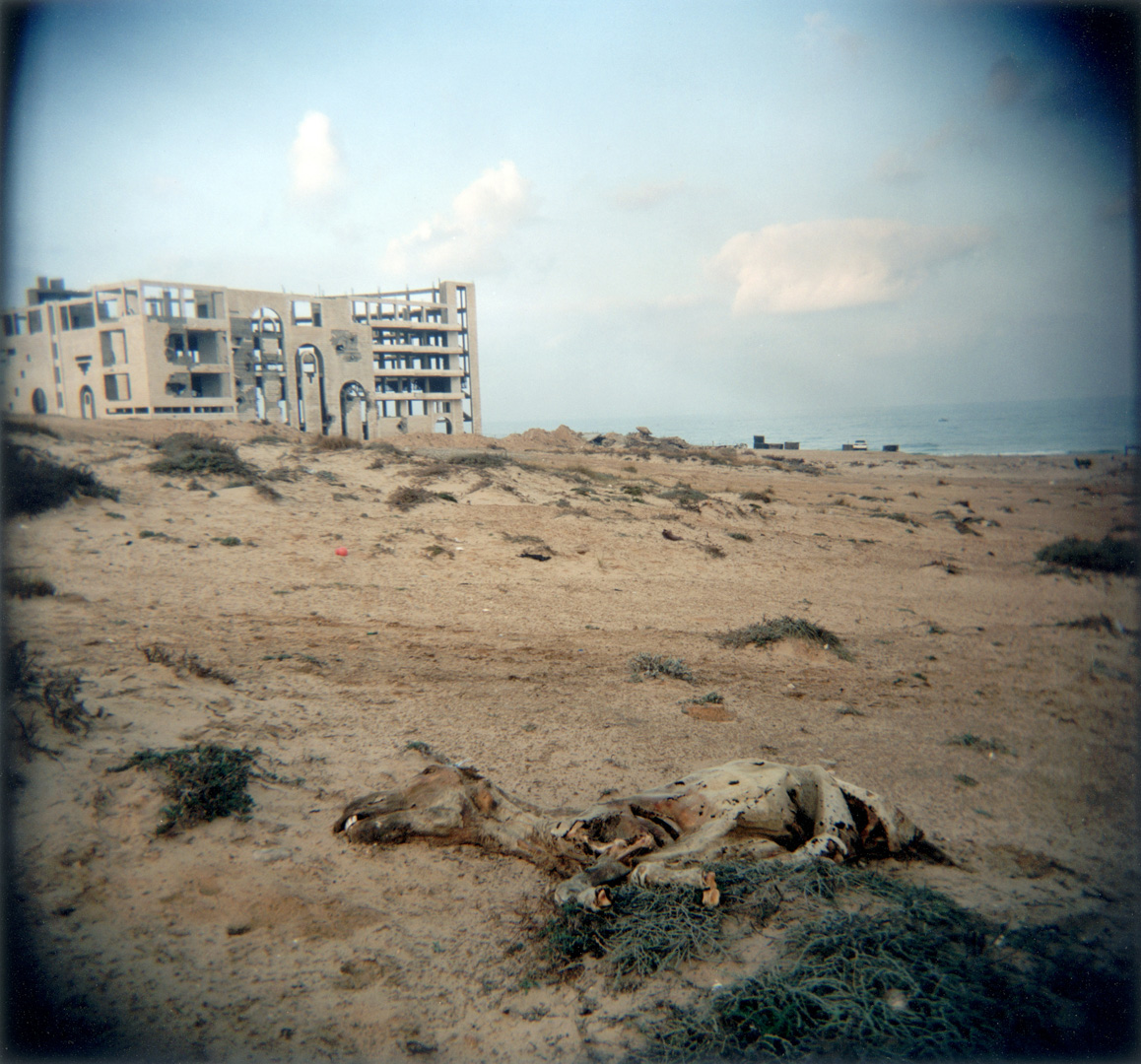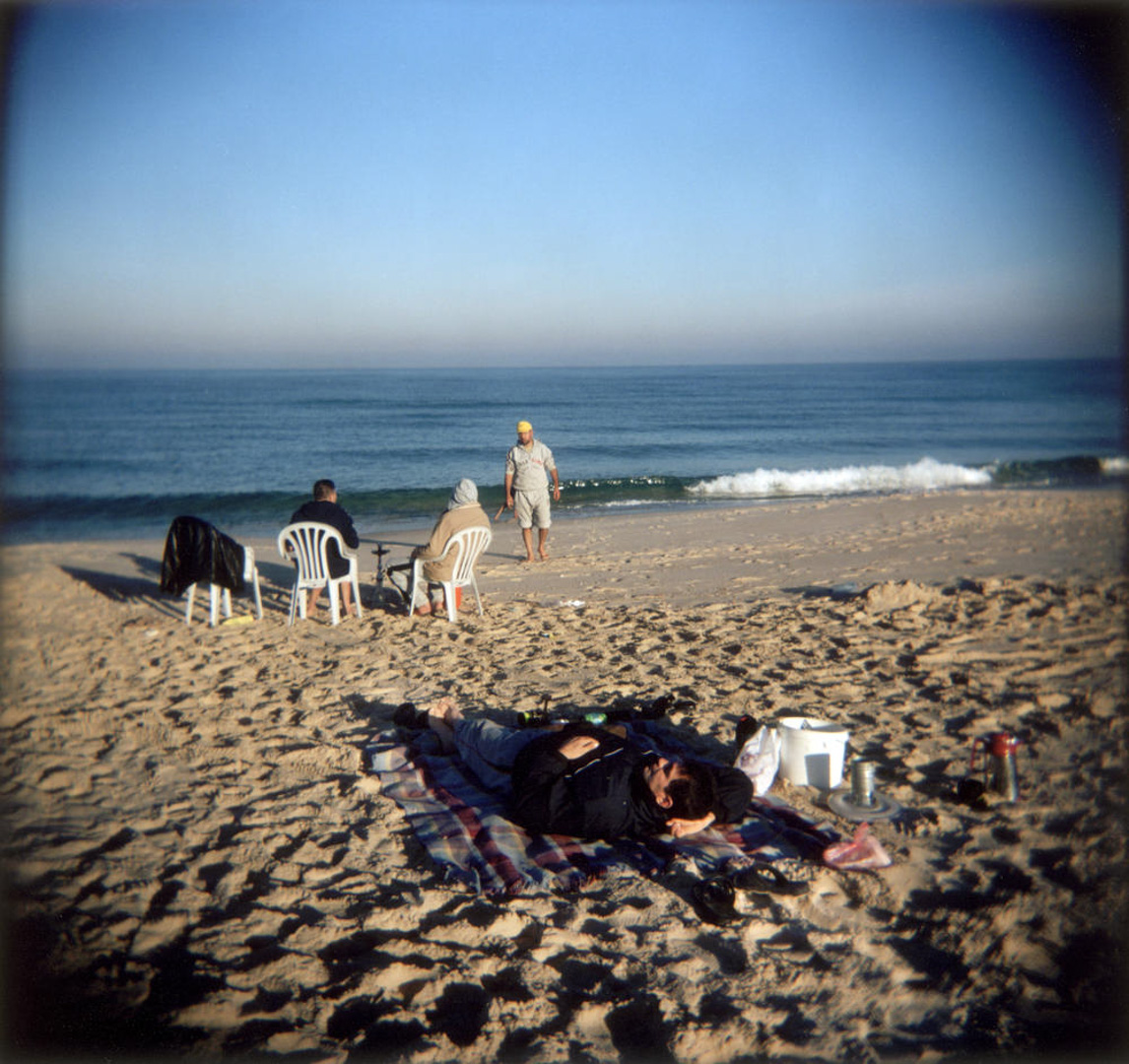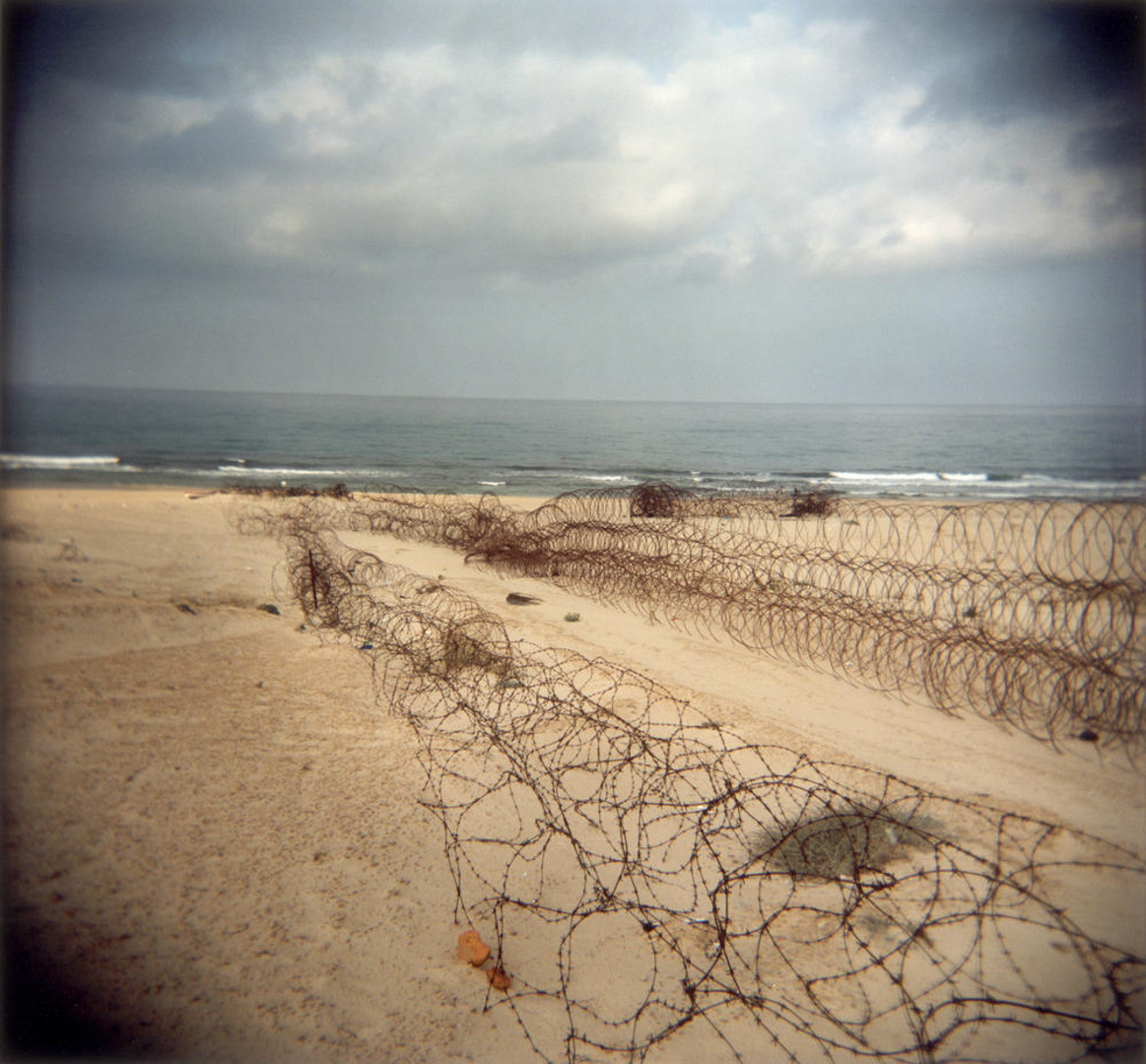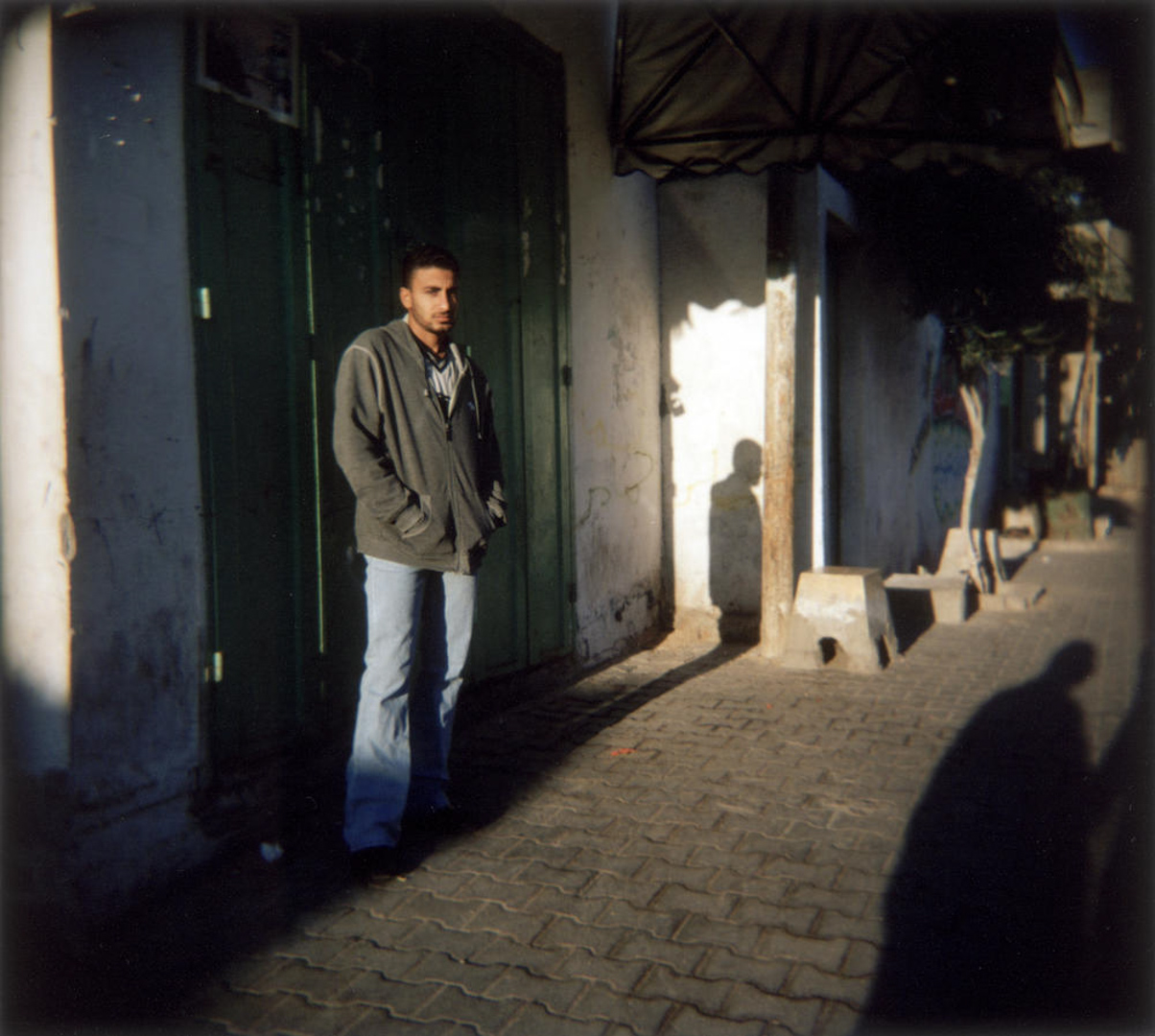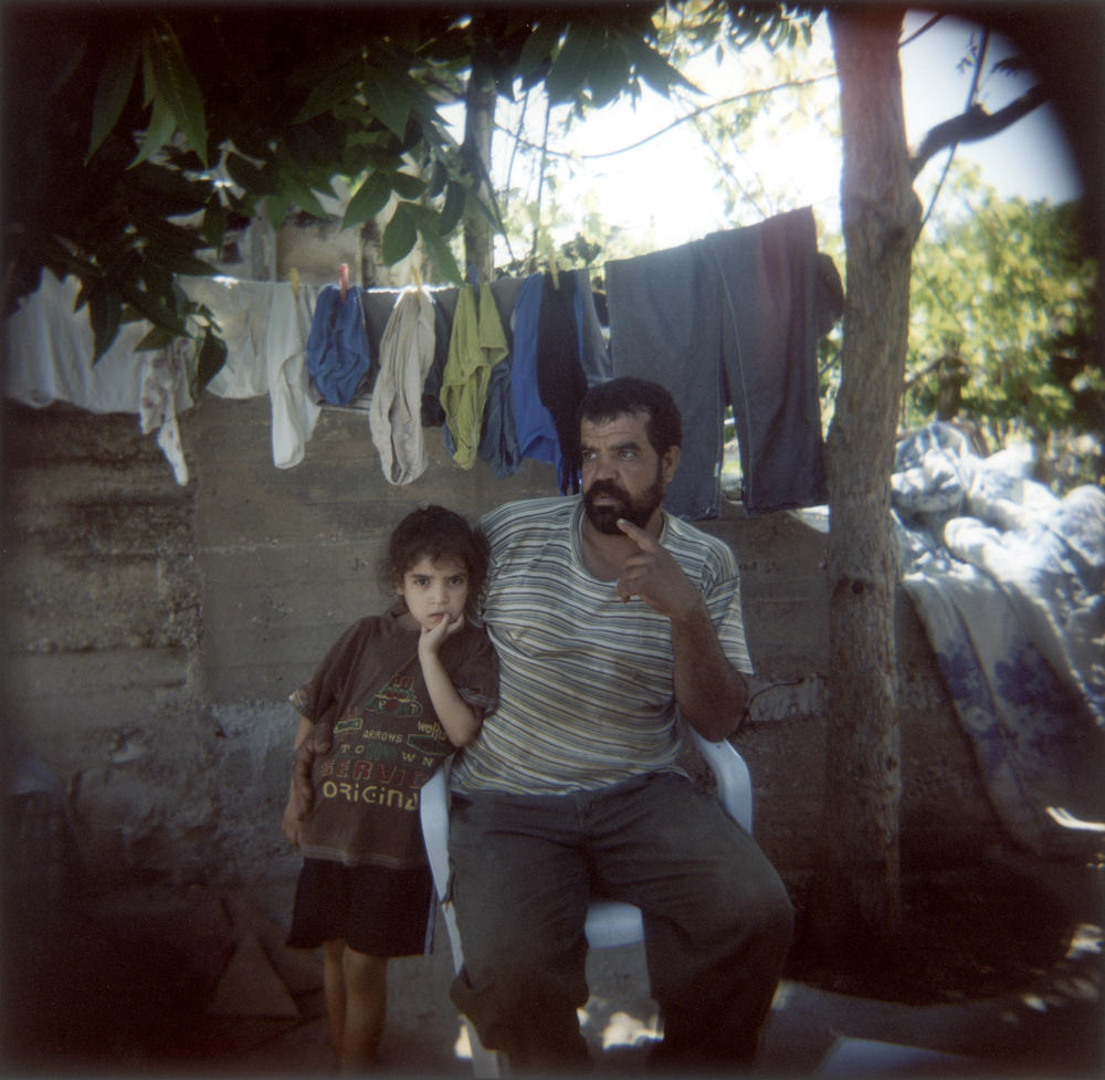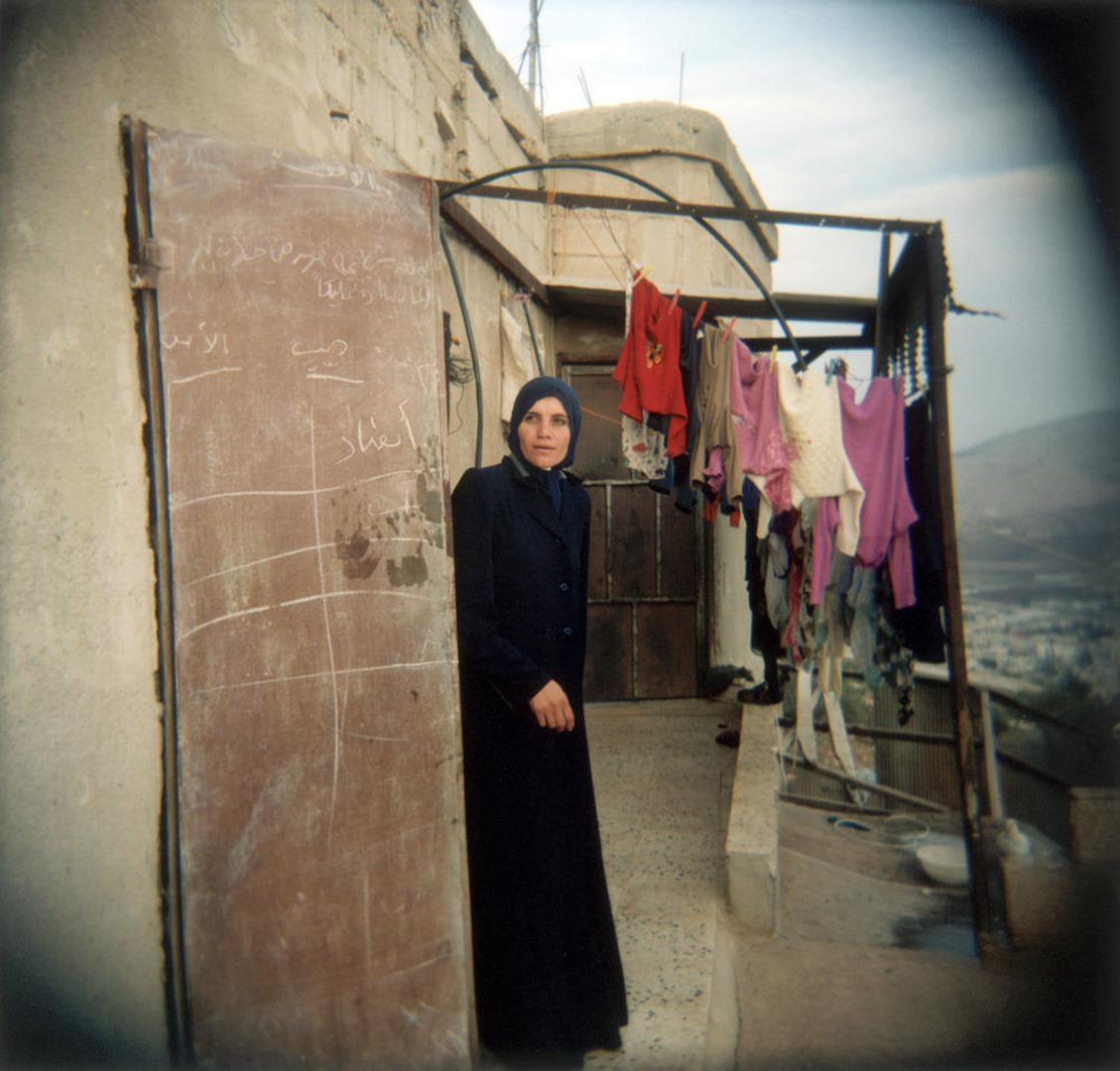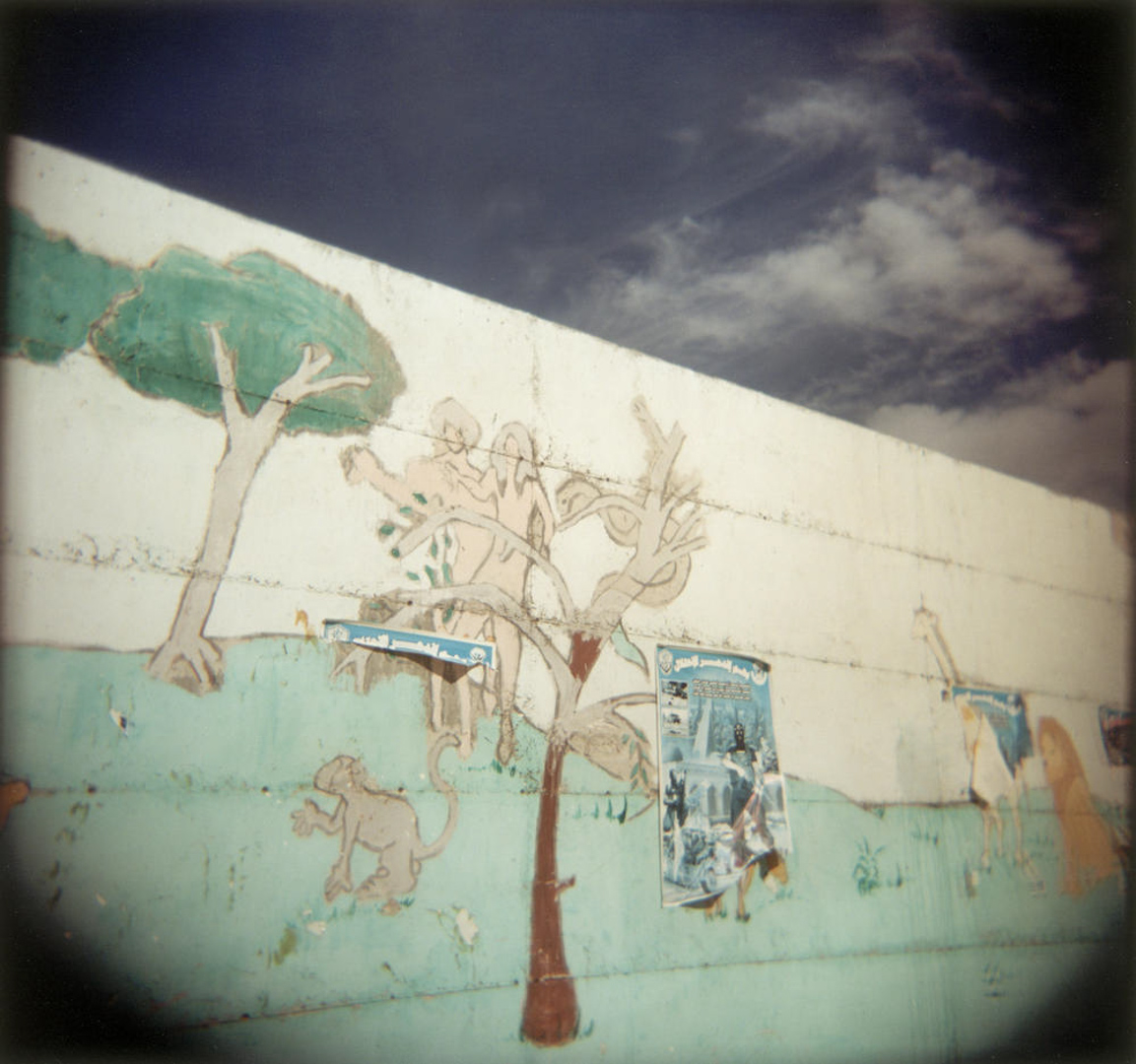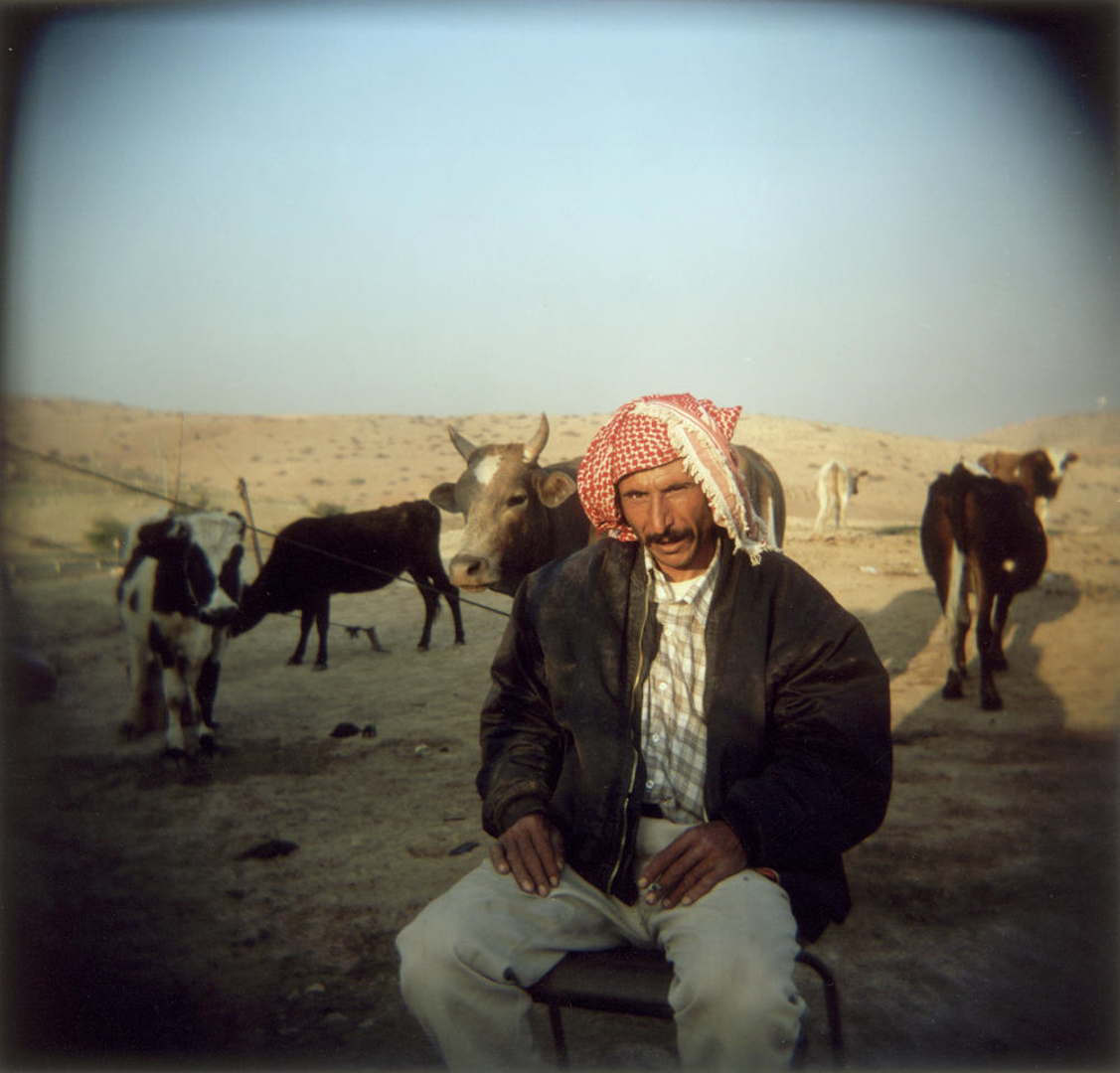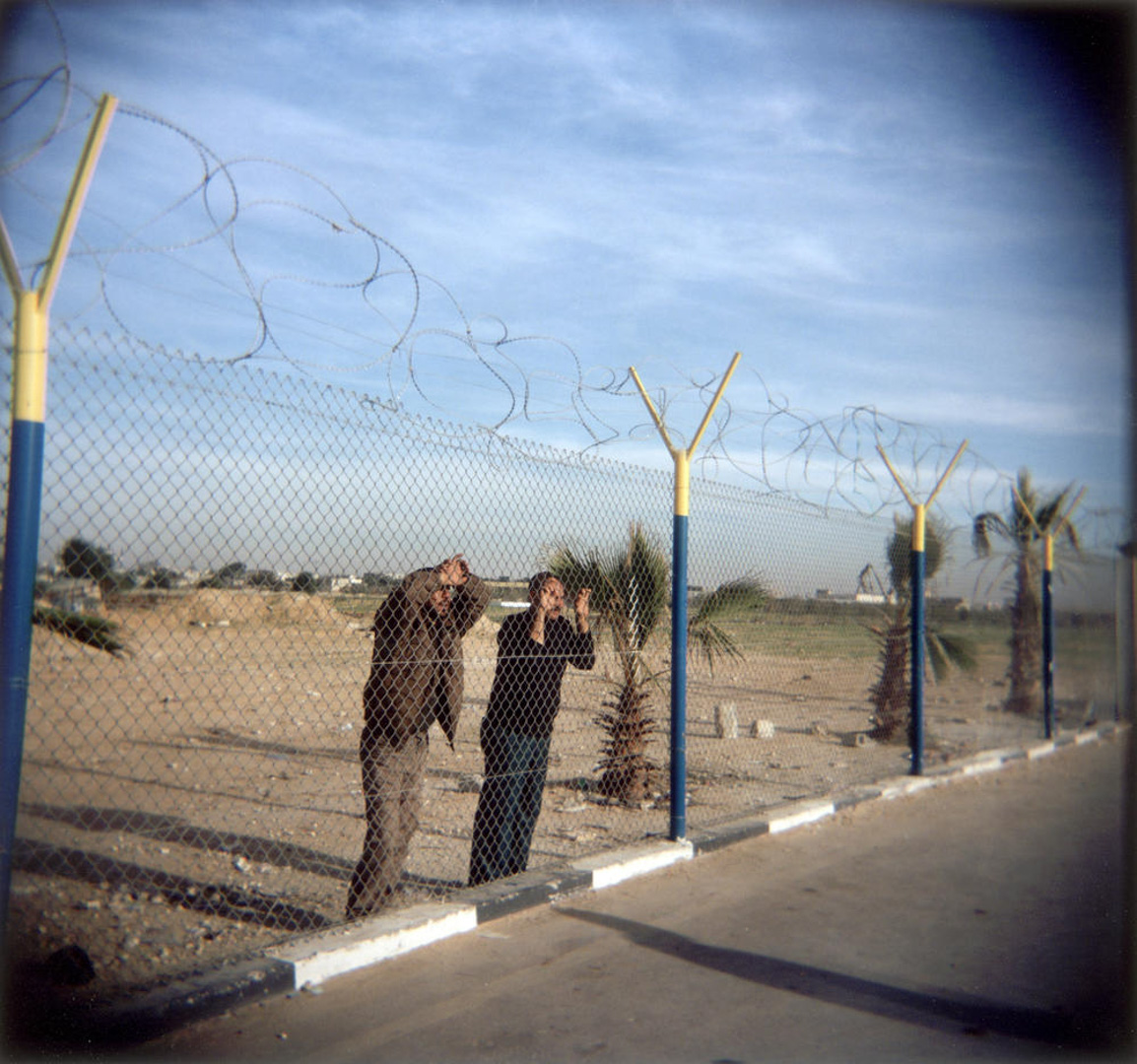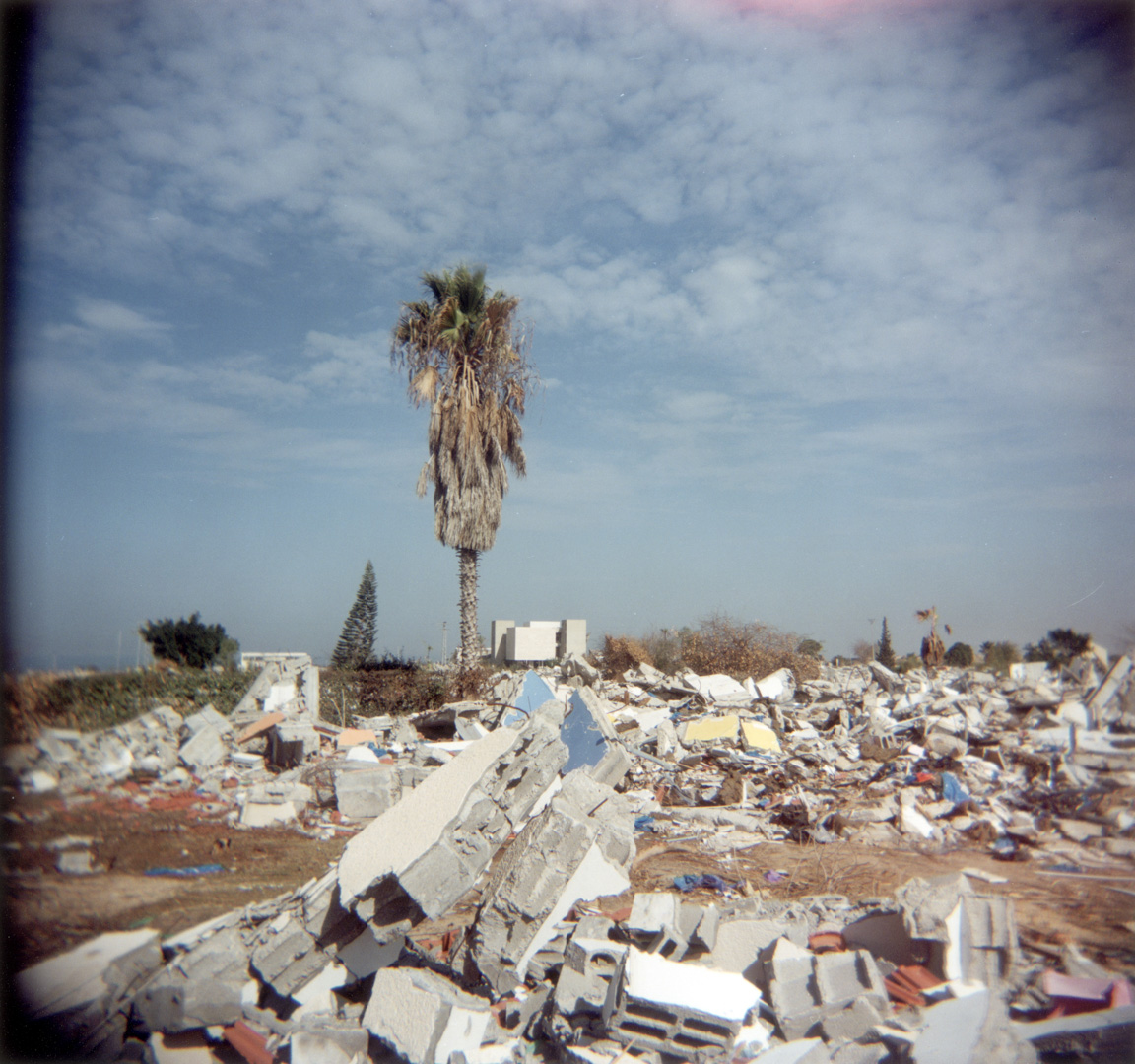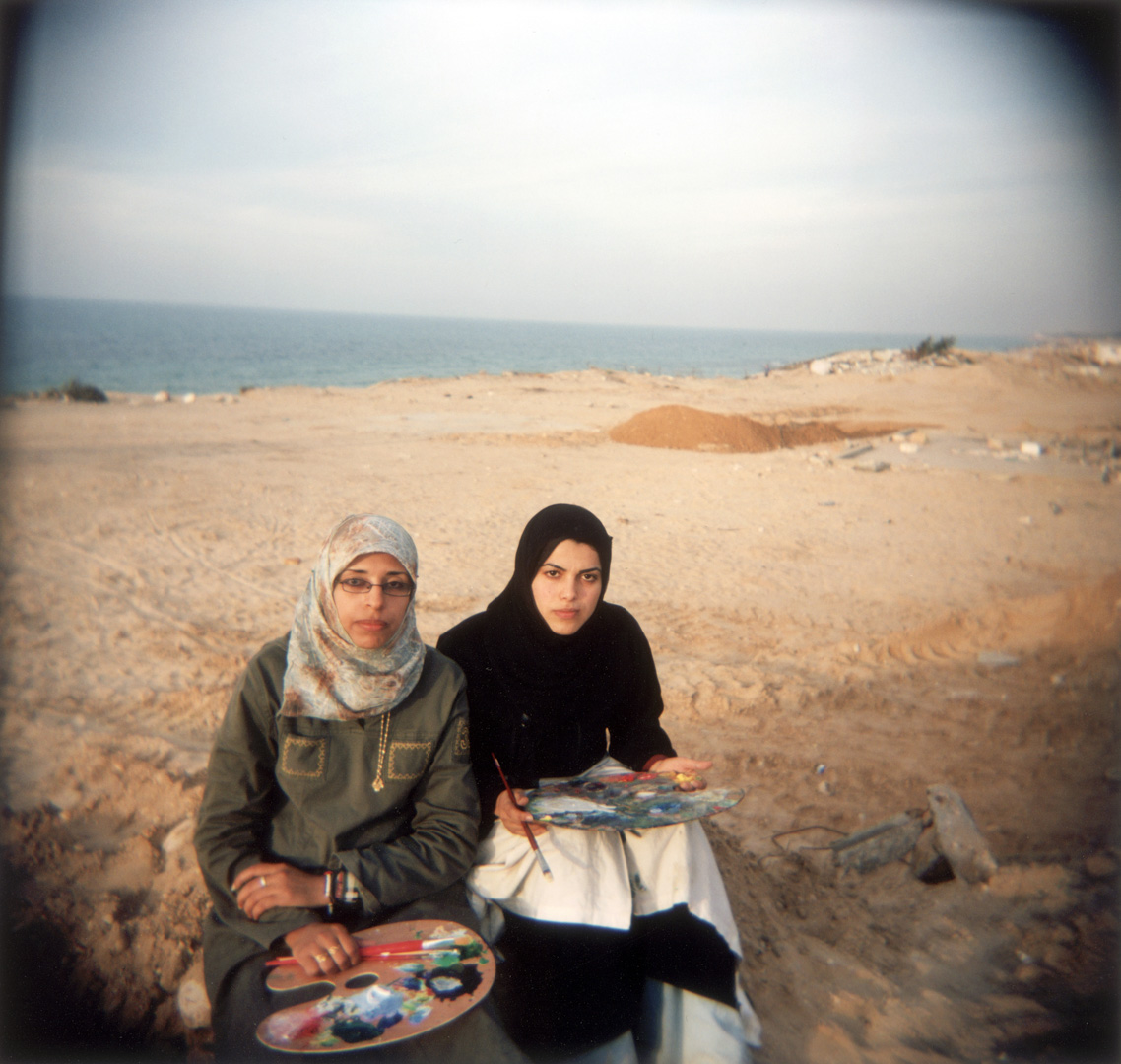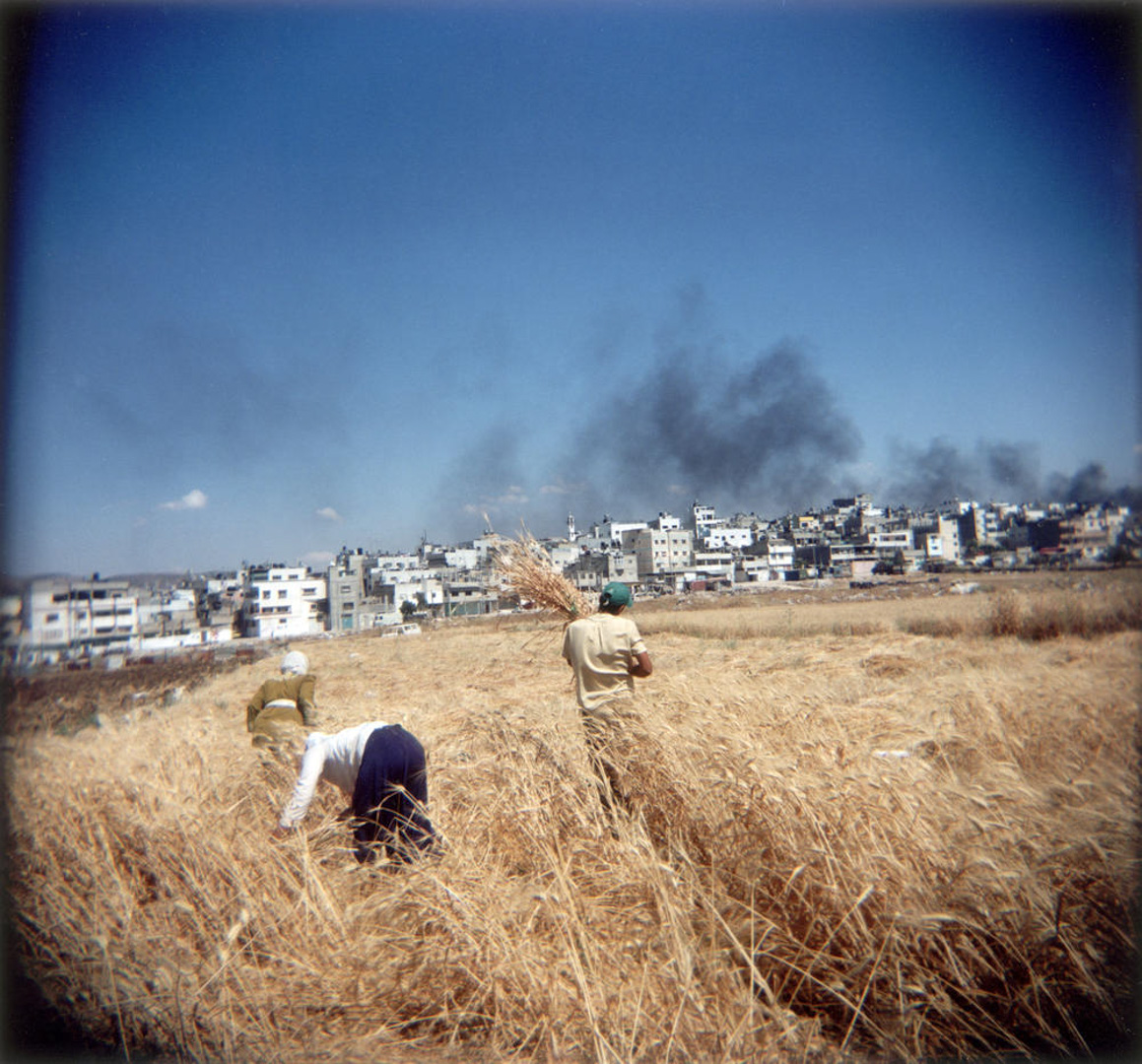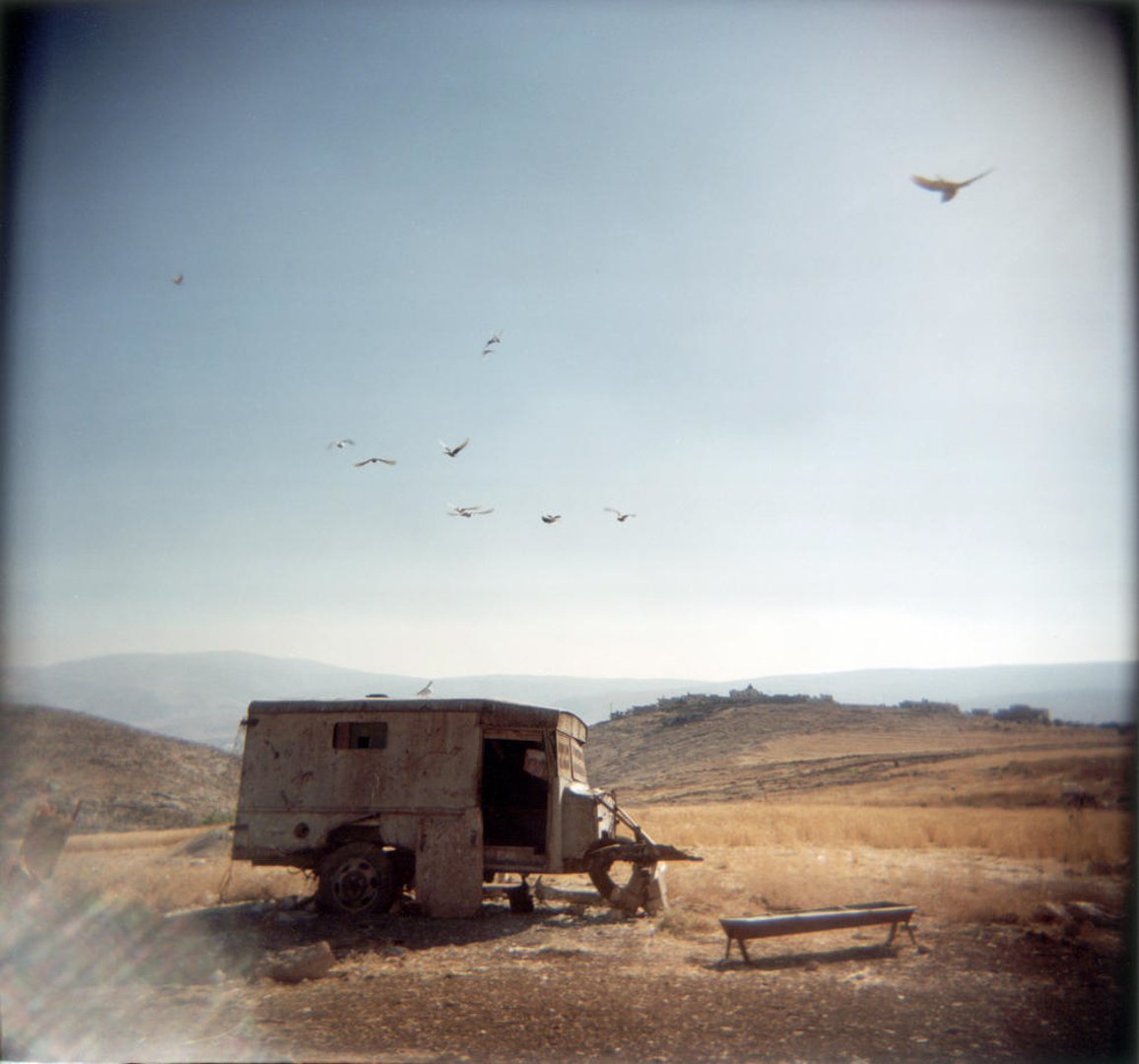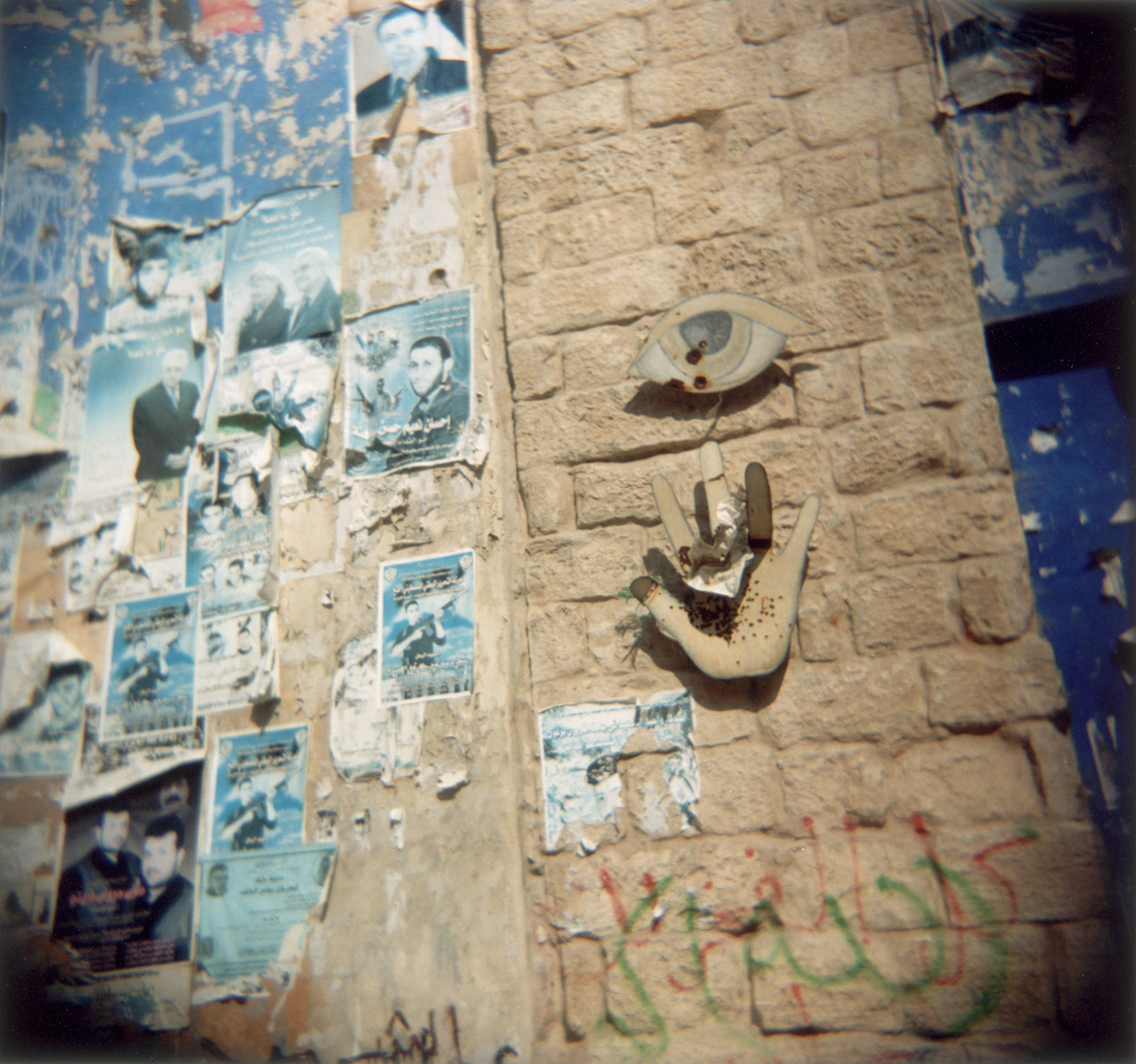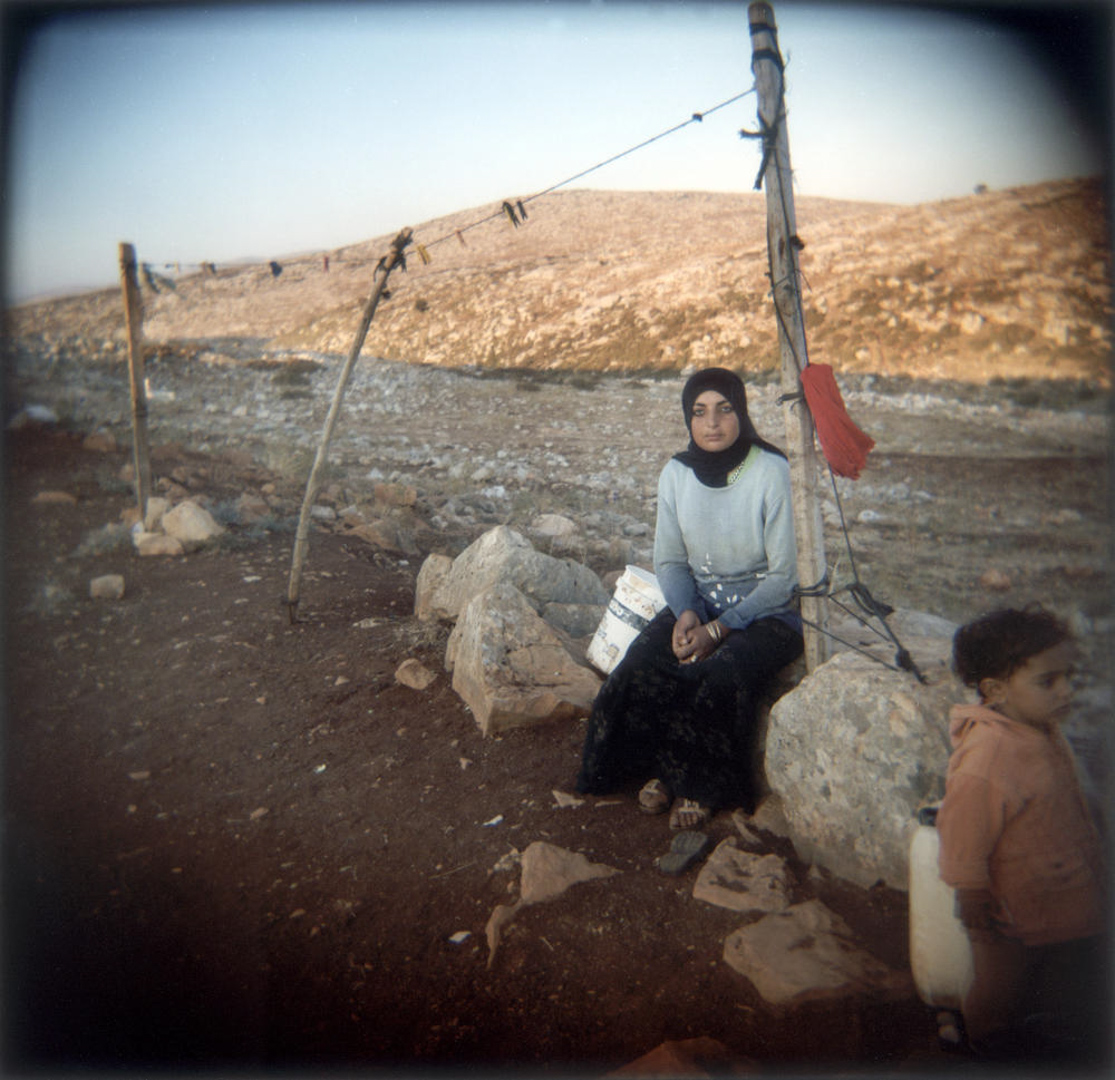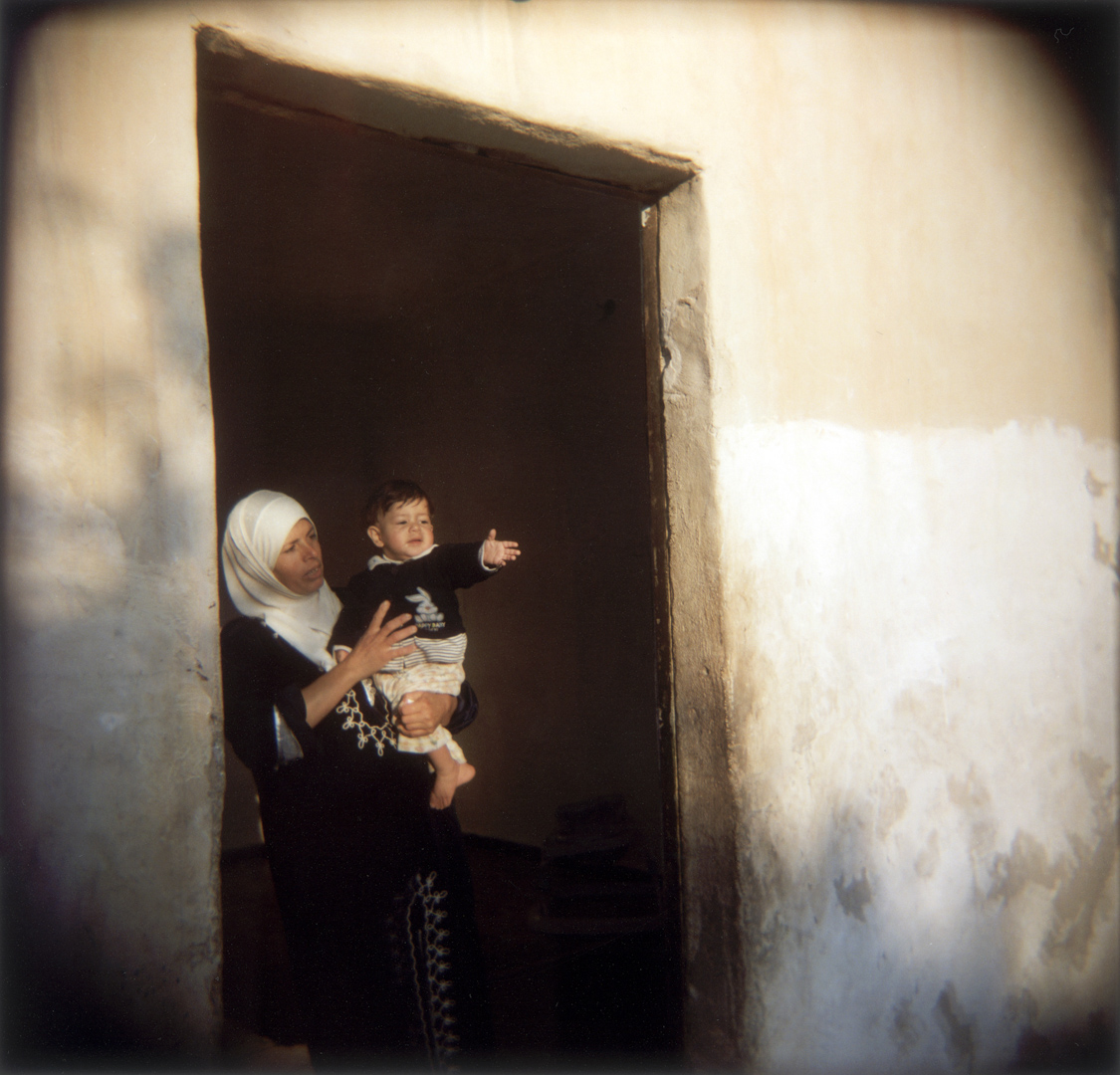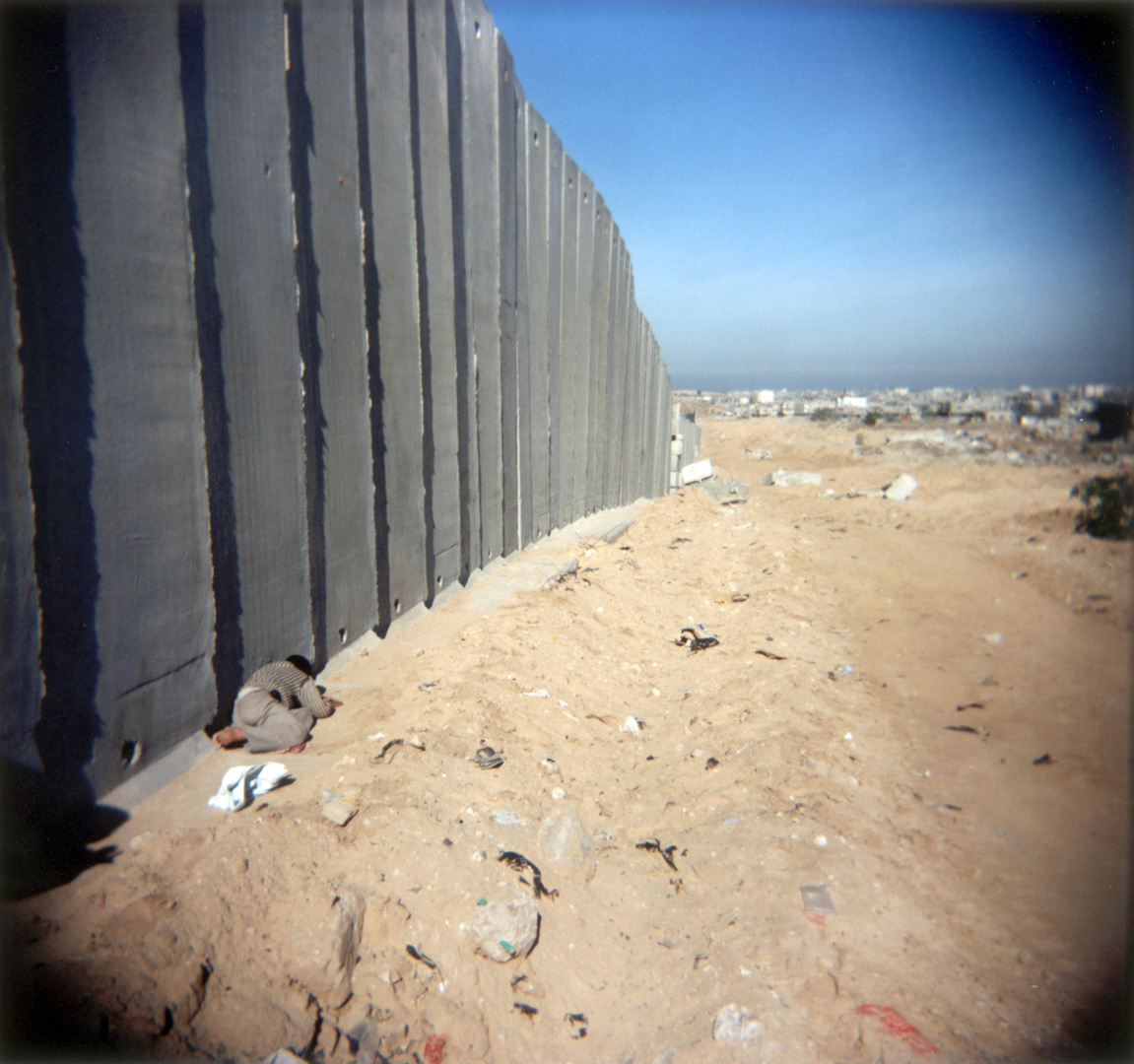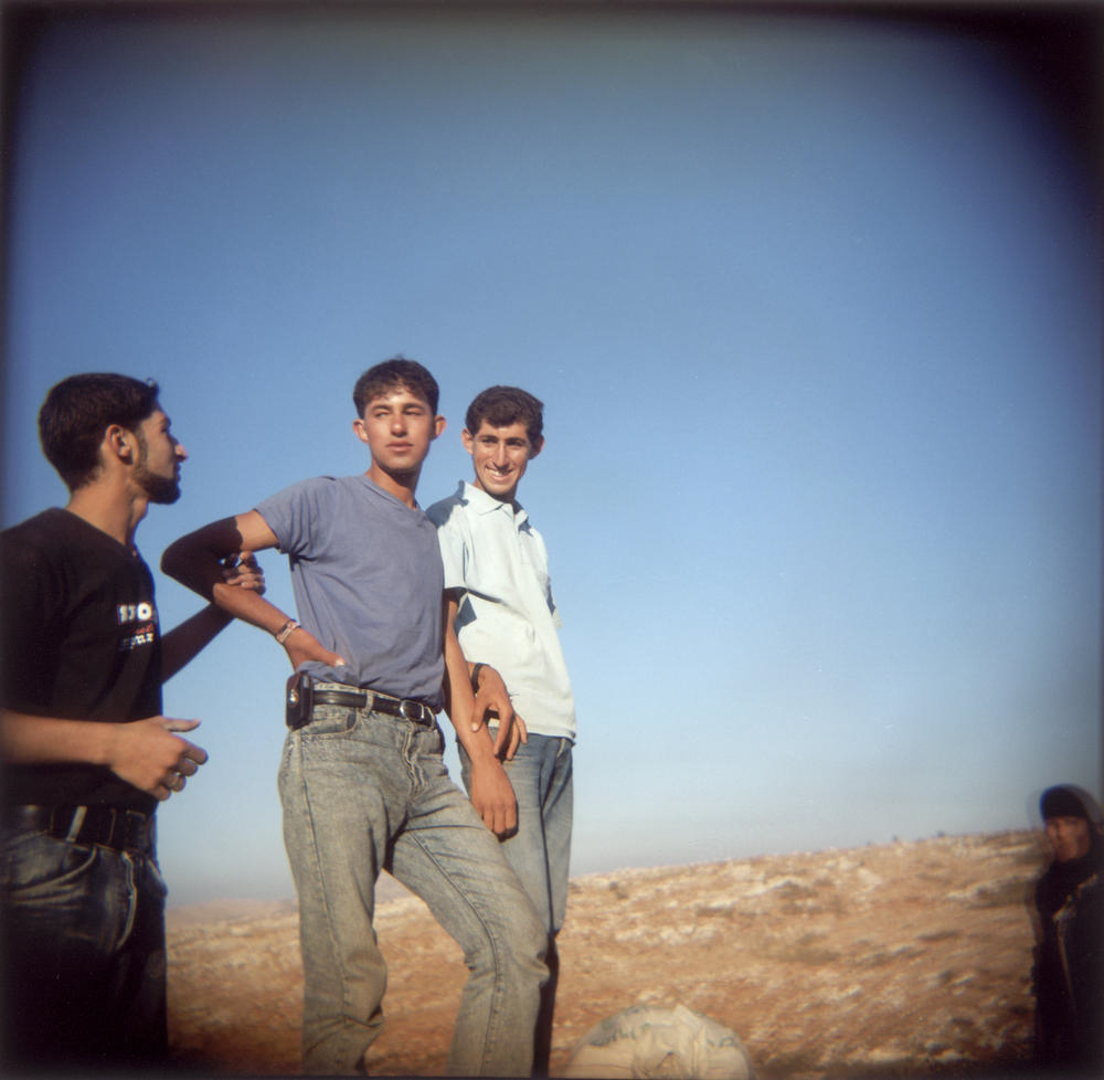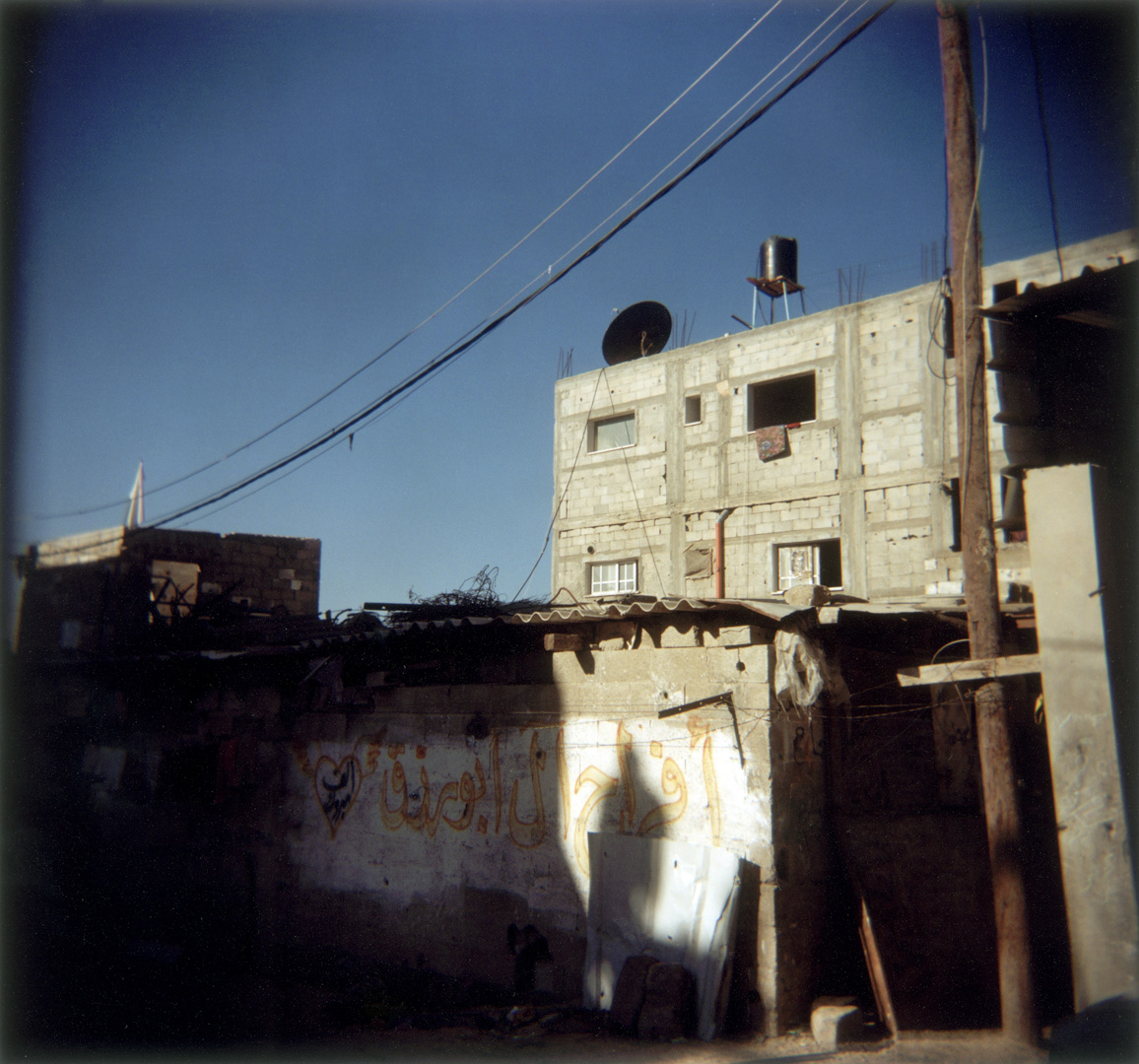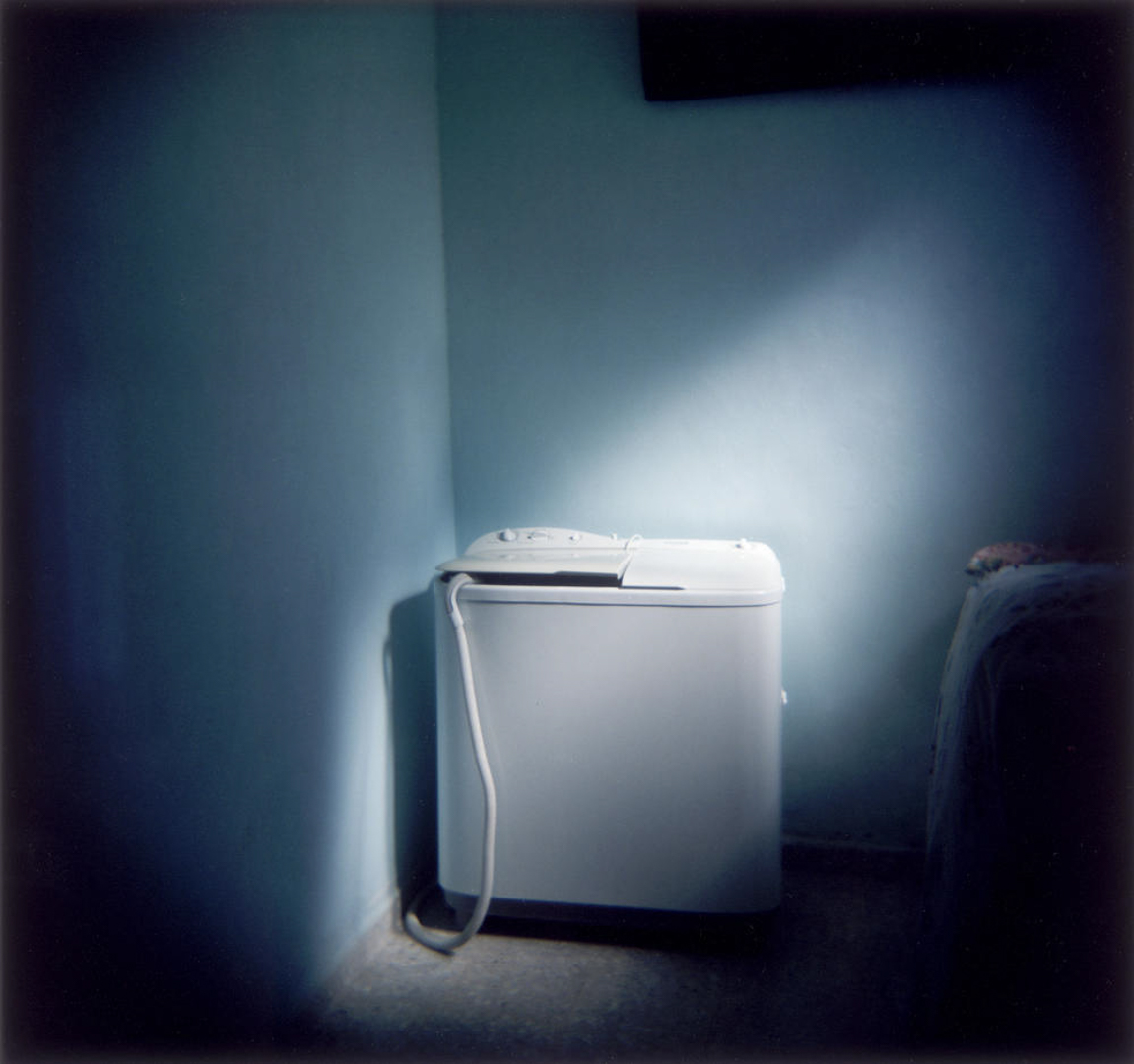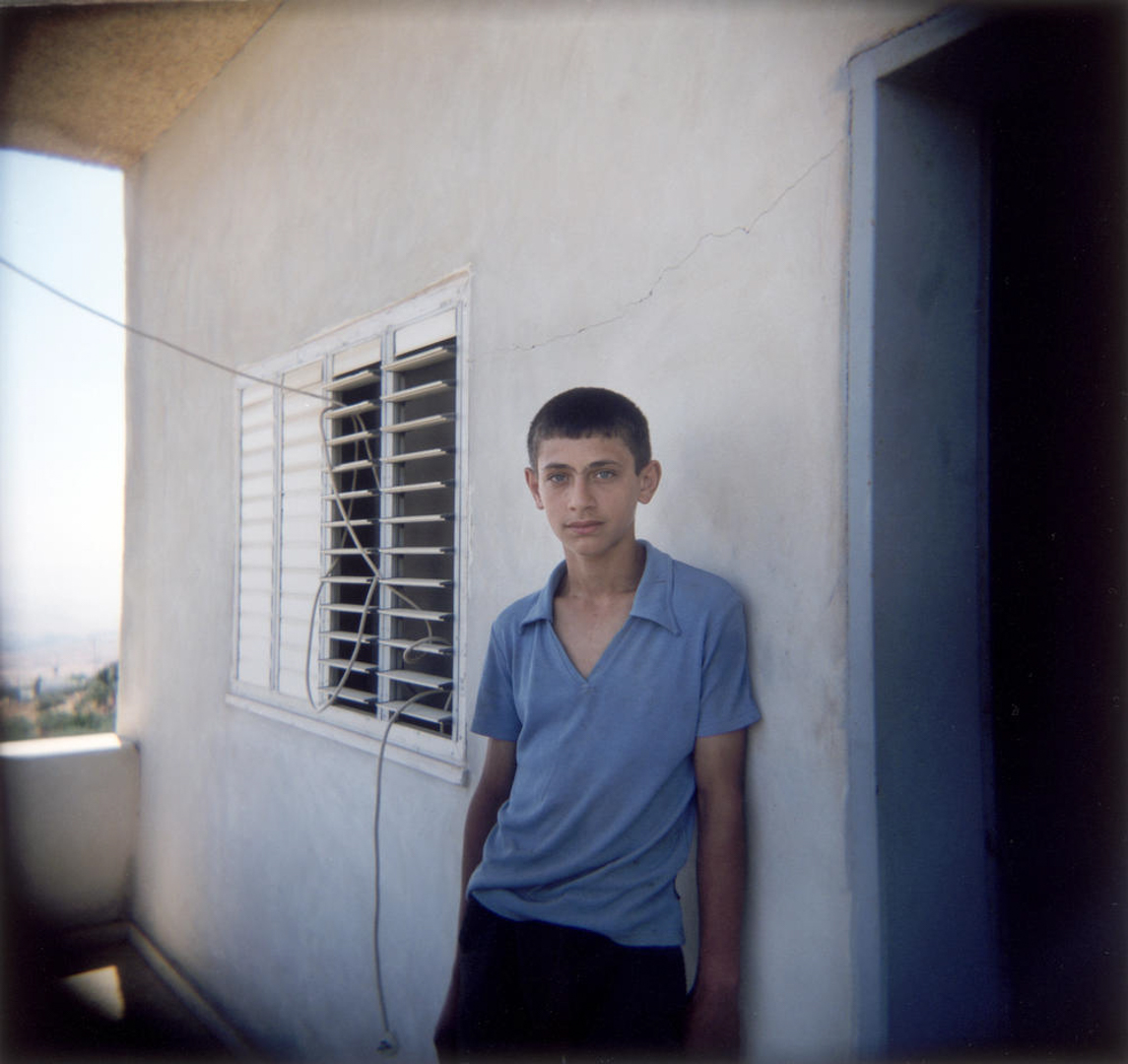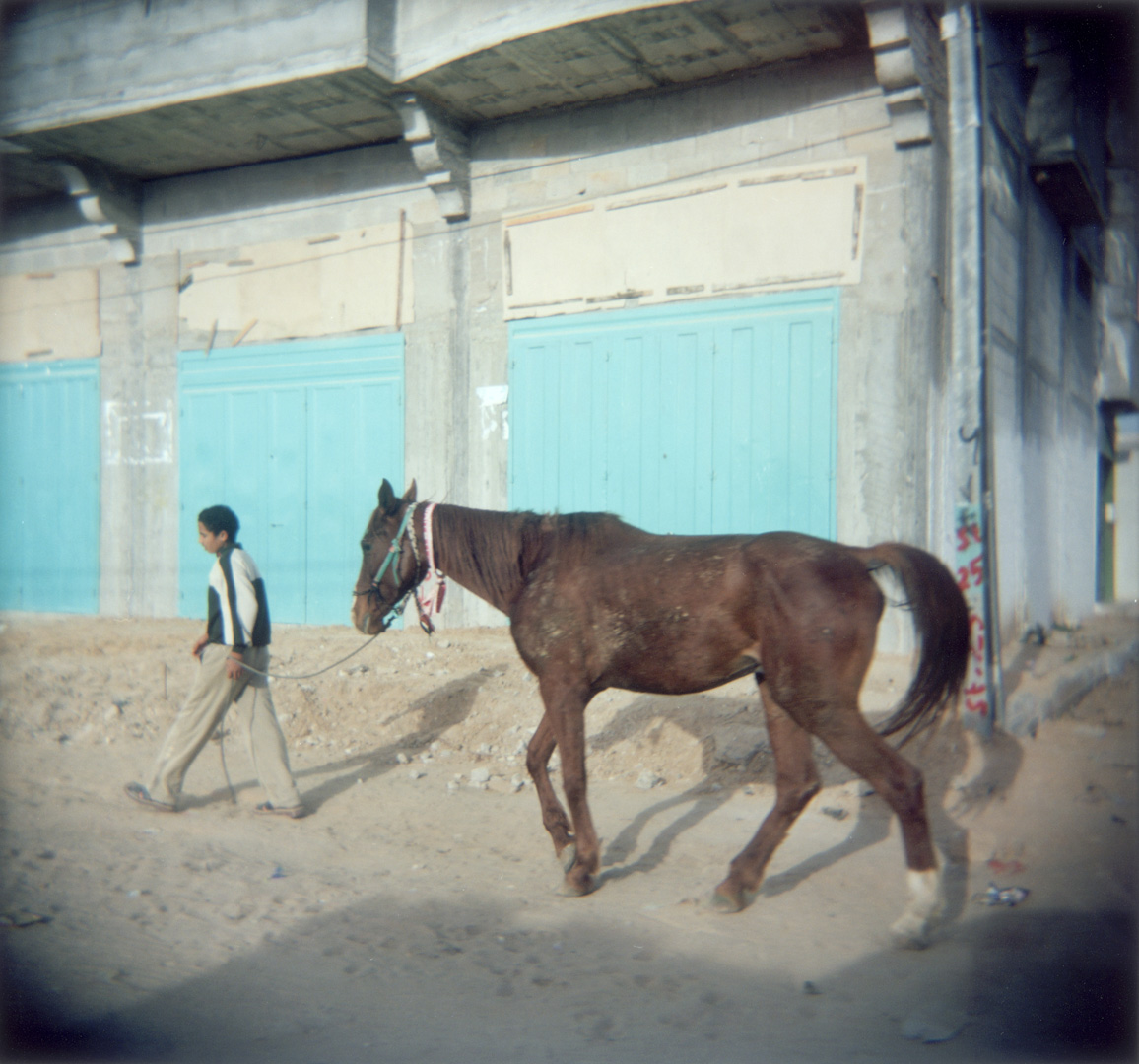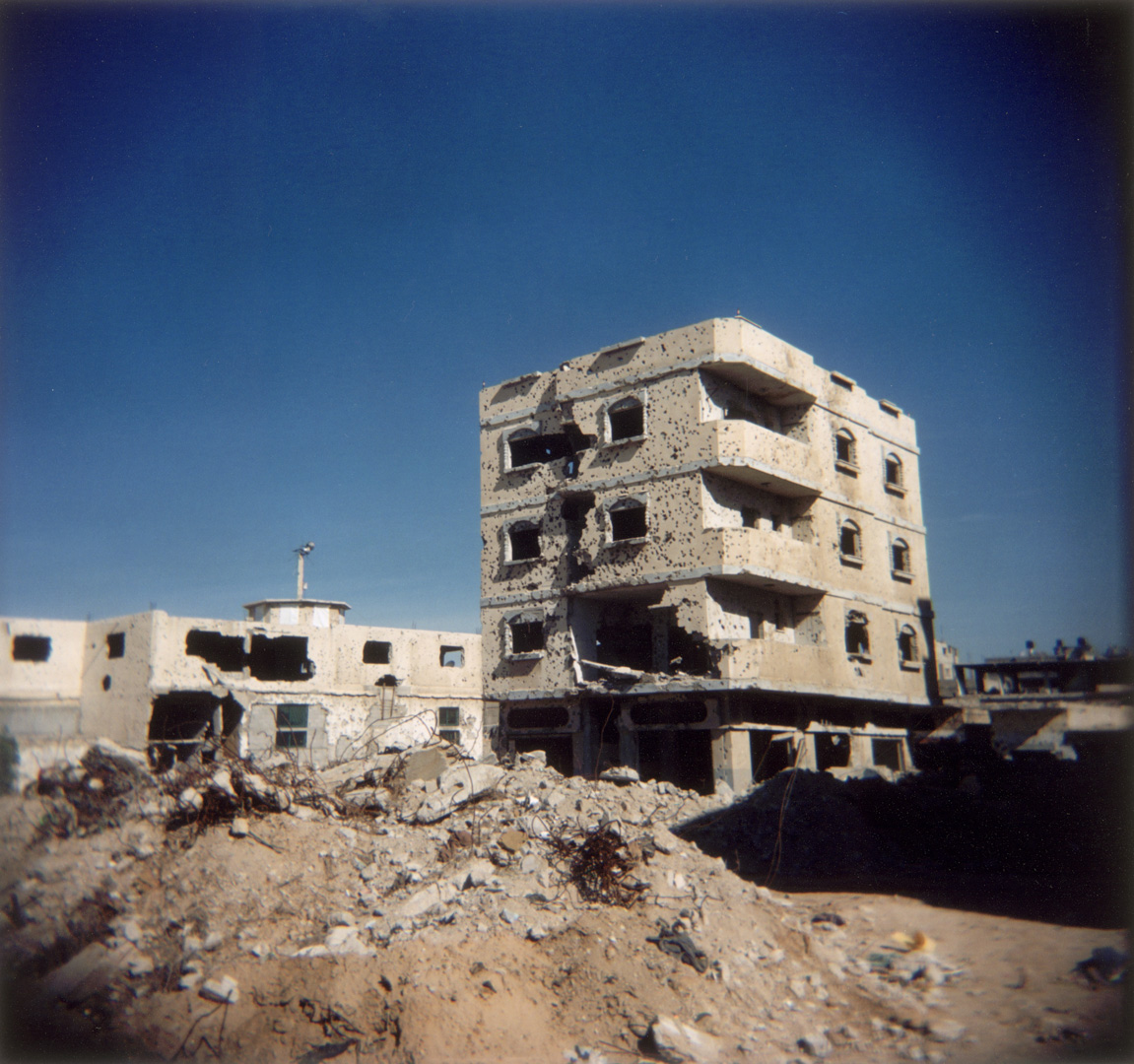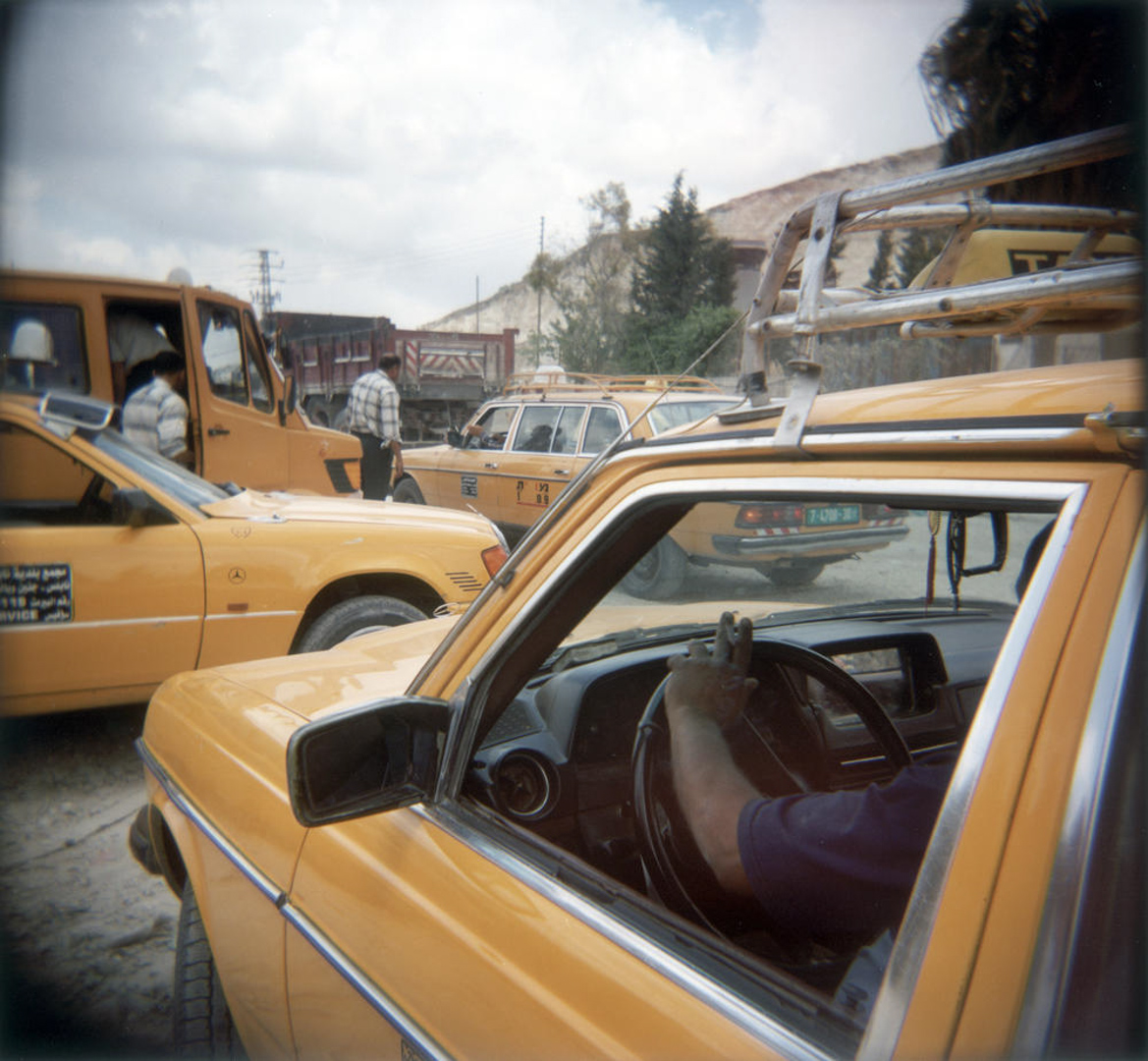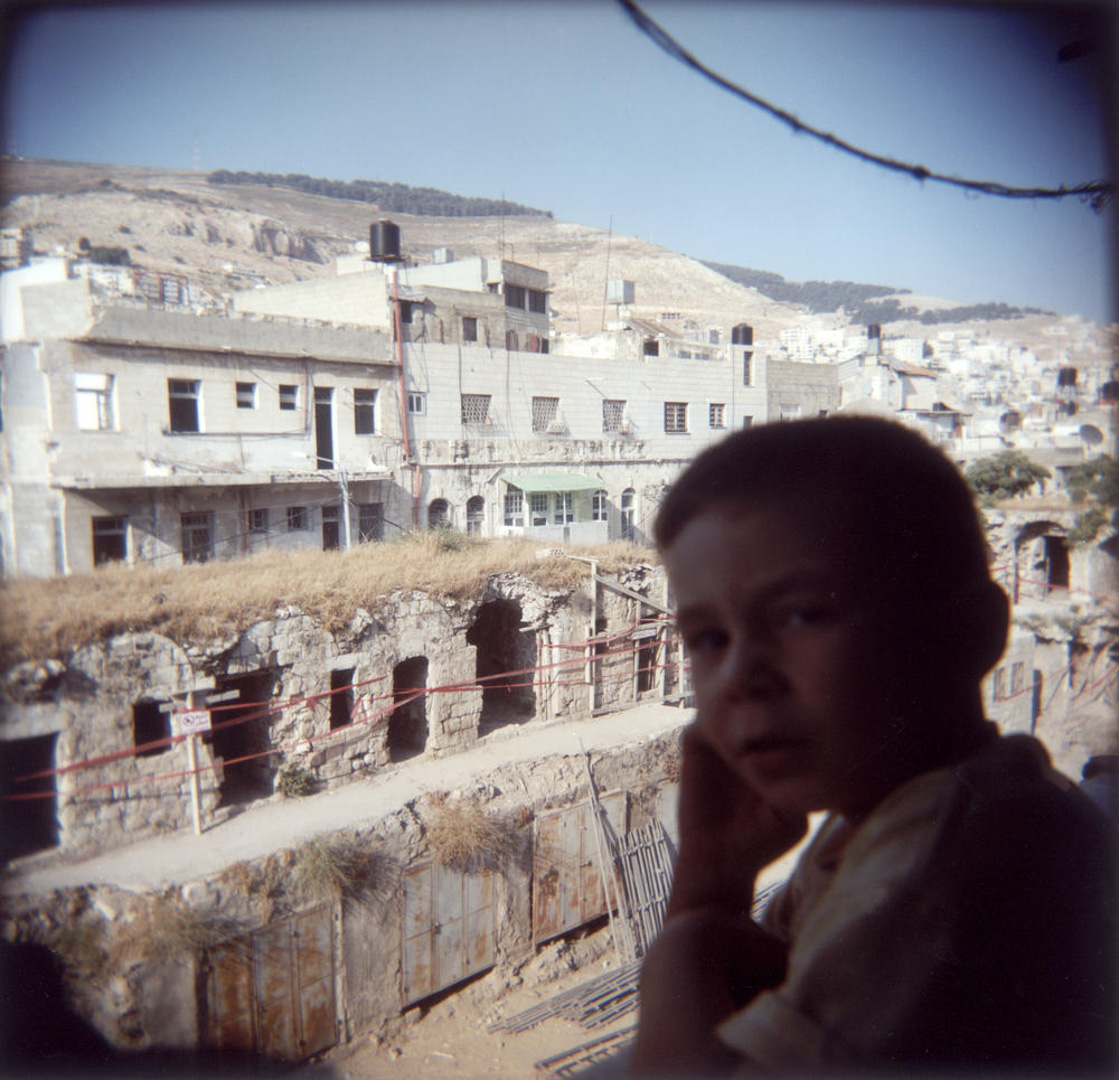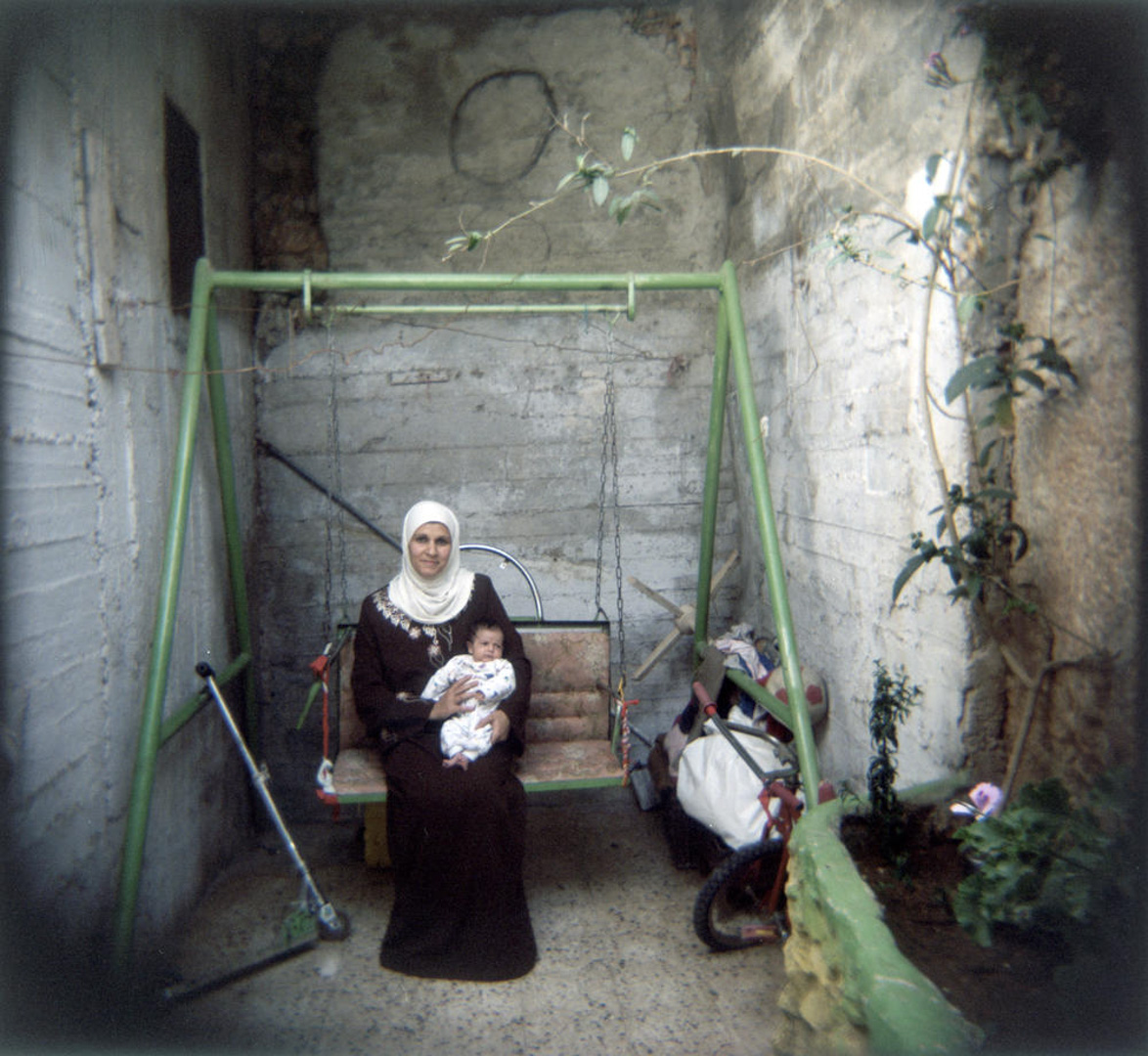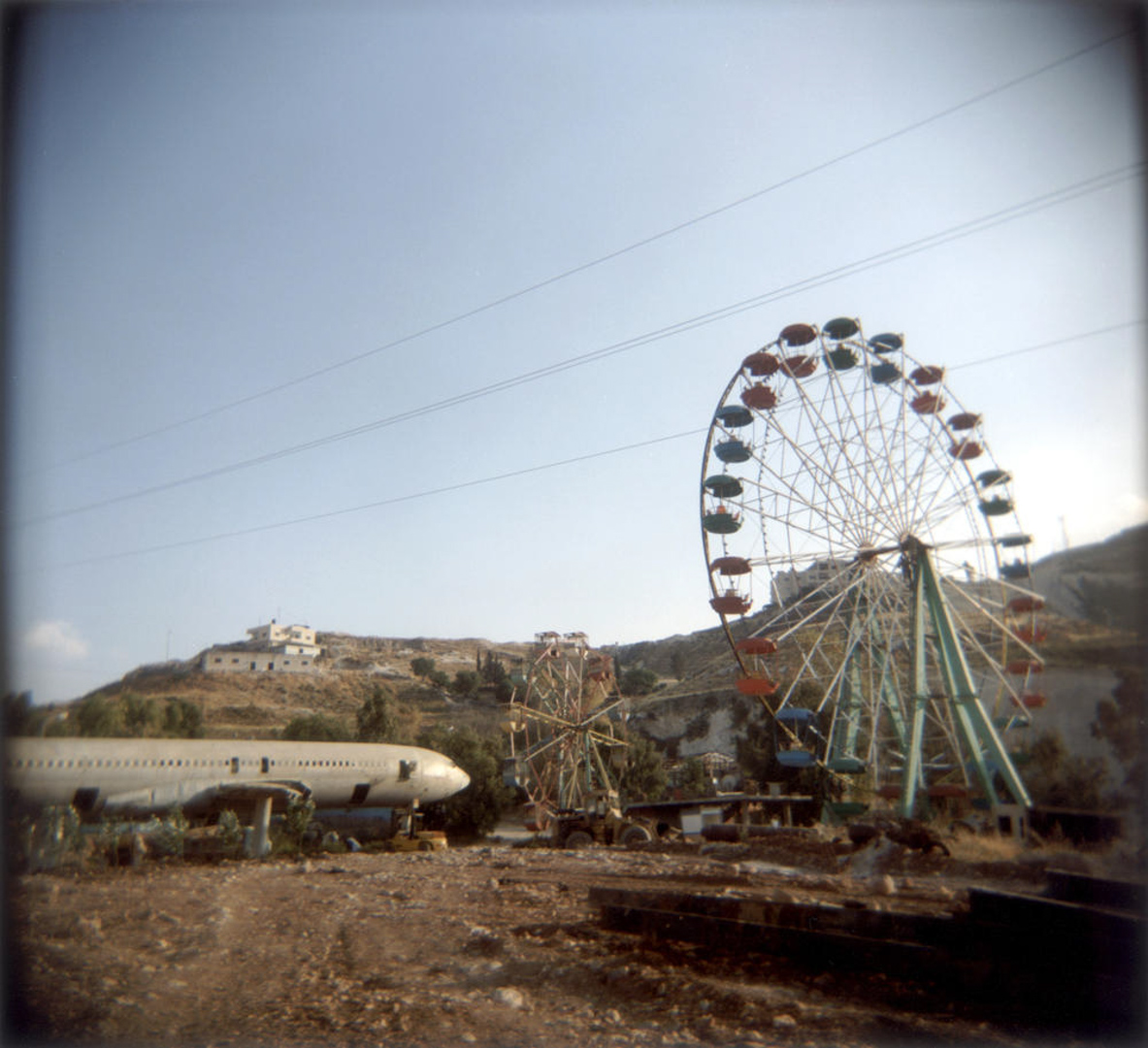Palestine, 2005-2008
The sound of the muezzin at 4AM. Some sheep grazing in the meager fields at the outskirts of the city. The smell of coffee with cardamom. In the lobby of the hotel, an Egyptian channel is showing videos with women wearing suggestive outfits. Men smoke cigarette after cigarette. They go in circles, hang out, chat, get bored. The houses are all built in the same style, in concrete or in local white stones, and give a monochrome look to the city. The towers with steel sticks are left apparent, an additional floor will be built when the family will be able to afford it. In the old city, lots of buildings have been destroyed. In the camps, small cities in the city, the promiscuity is so that in some houses we can hear the neighbor talking. Every family has its stories: a relative wounded, another one killed, a house destroyed by a bulldozer, a son in prison. Utility bills have been unpaid for five years. In spite of that, there is the will to try to live normally. In the houses, there are big flowery curtains, five or six sofas, neon lights in all the rooms, plastic chairs. Sometimes a room is left empty, in case a friend, a relative would be in need. In the kitchen, the fridge is often empty. Everywhere we are offered tea, coffee. To enter or leave the city, there are checkpoints, roadblocks. Sometimes people have to wait for hours under a burning sun. They are prevented to go to work, to their fields, to the hospital, to school. They sometimes have to walk around for hours, in the mountains, hiding.
The Middle East conflict is probably one of the most studied conflicts in history. Every day we hear about the Occupied Territories but all we can get from the news is a feeling of confusion and violence. Behind the sensational images we see on television, are human faces, families, everyday lives. We can only connect to people when we hear their stories. Otherwise, reading about suicide bombings and political problems doesn’t mean so much to a lot of people.
The Palestinian population, taken in hostage between the Israeli security policy and the Palestinian Authorities strategies, is in a precarious situation: victim of unemployment, under a strict control of movement, making commercial exchanges impossible with the outside world and access to public health services very difficult, victim of preventive and punitive military actions against civil habitat and resources, the Palestinians don’t have any mean to demand the respect of their basic human rights. The percentage of people living in the Territories under the level of poverty has increased drastically since the beginning of the 2nd Intifada. The political environment is conducive to the development of violent strategies causing a feeling of permanent insecurity and an increasing feeling of fatalism. People feel forgotten.
From what we read, see, it sometimes feels that the Palestinian population is an abstraction. They are 4 million lives, who all have their story. How is it possible to go on with life in a place that has been occupied for more than forty years? How can people cope with the lack of hope? Mustafa tells me: “I can not travel, then I read. I especially love Madame Bovary. If I could, I would go to Paris, but first I would go to Jerusalem.” This work wants to reflect the difficulties faced by Palestinians, their indomitable will to survive difficult situations and the continual quest to build and live within a life of dignity and grace.
